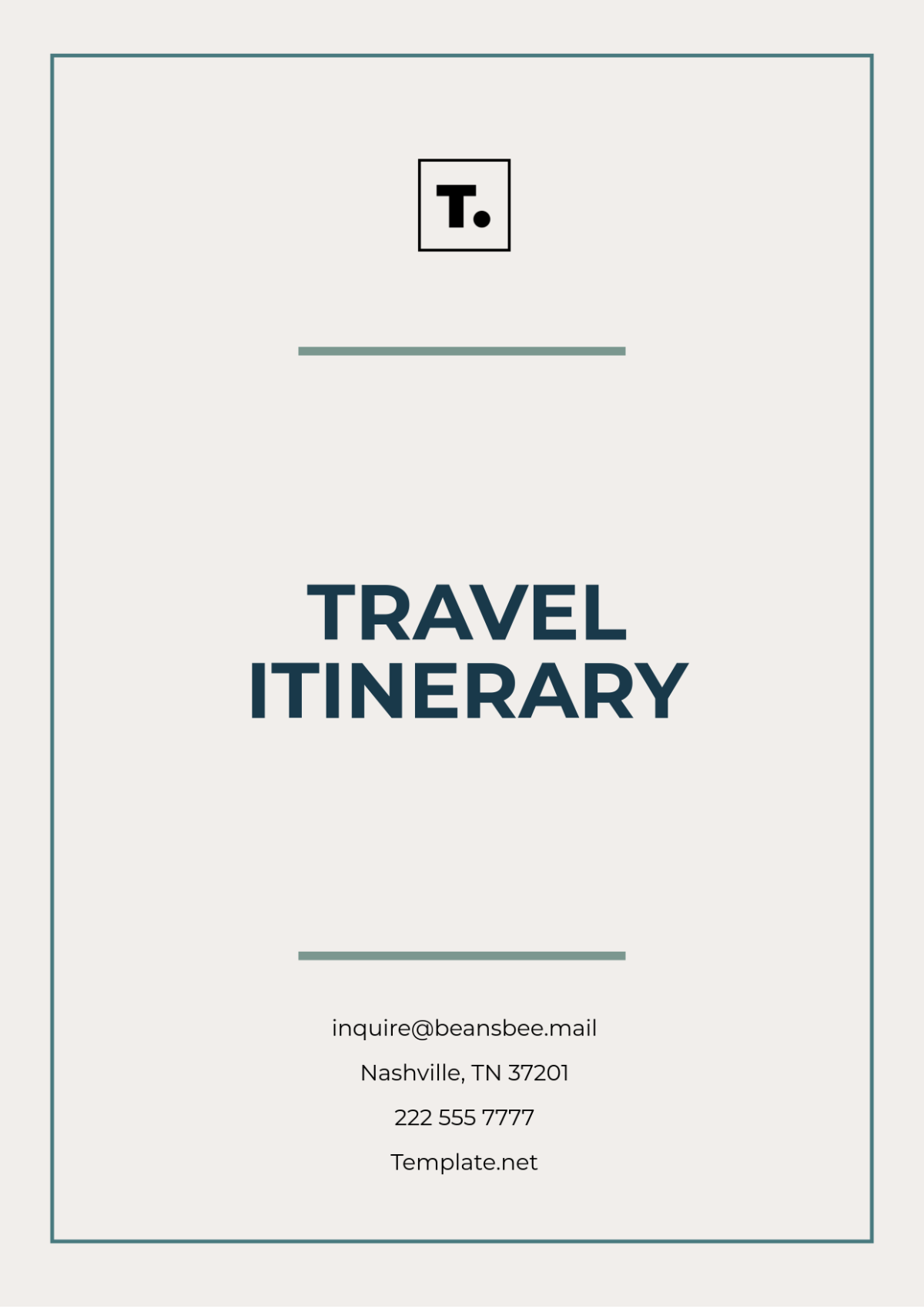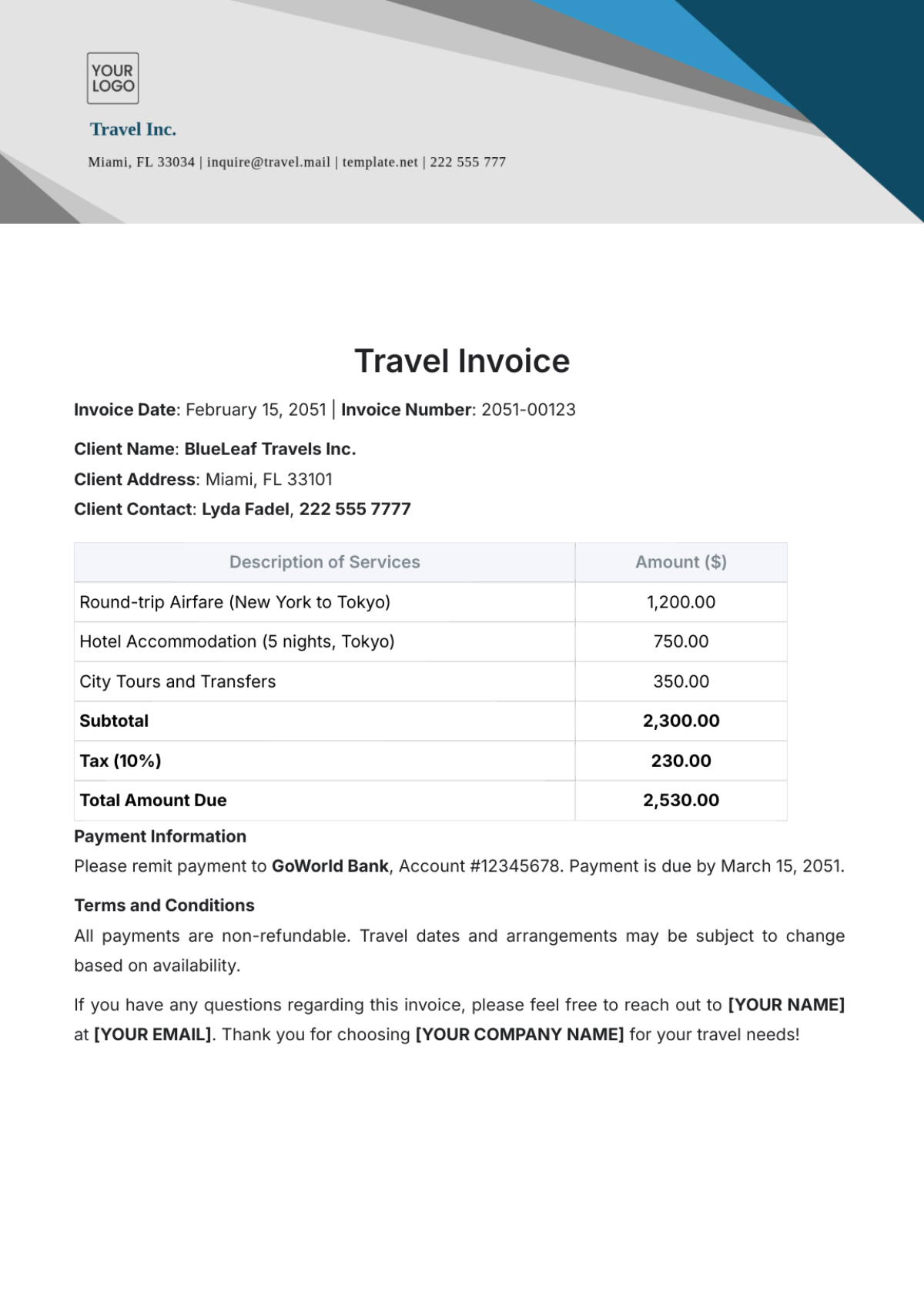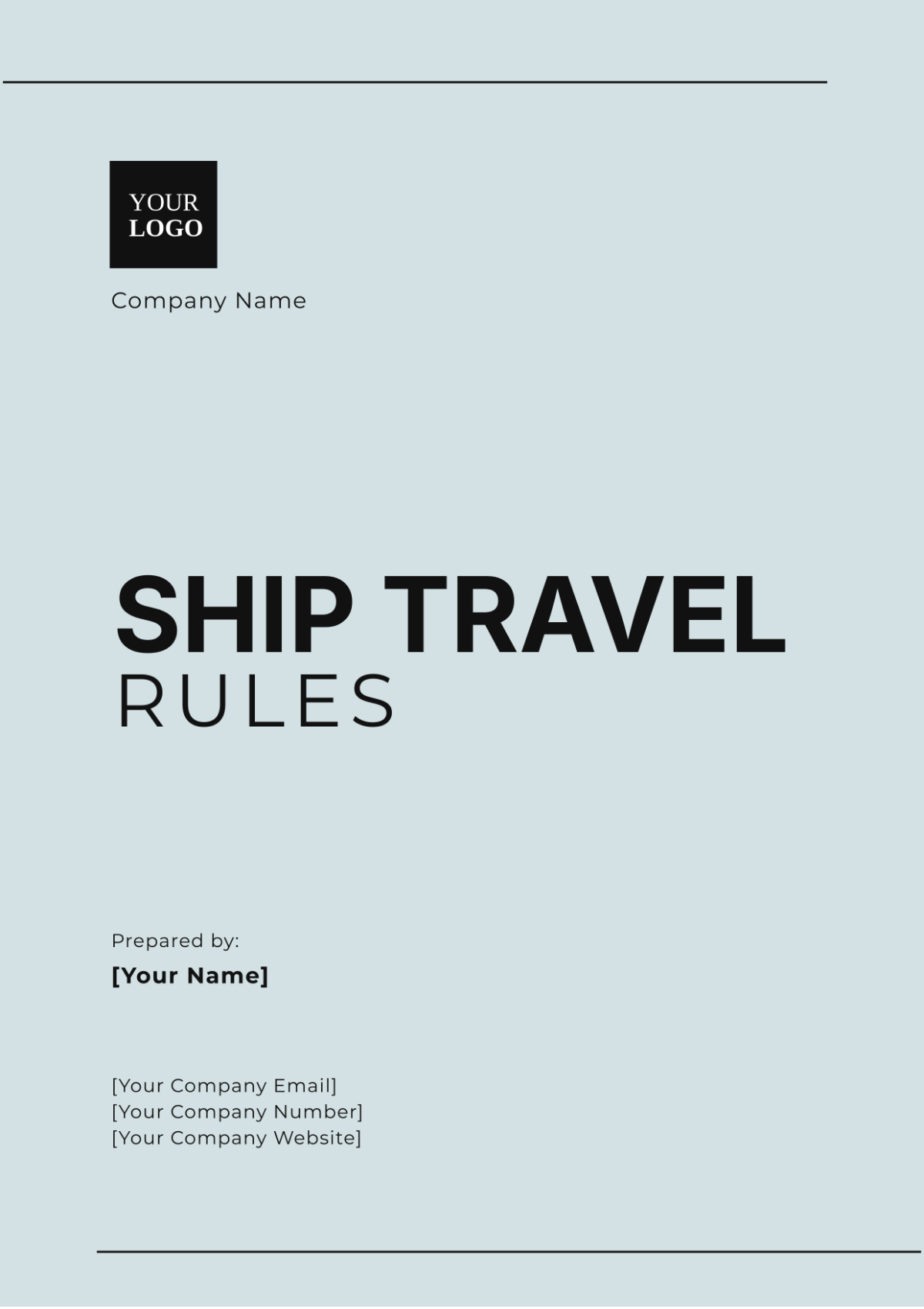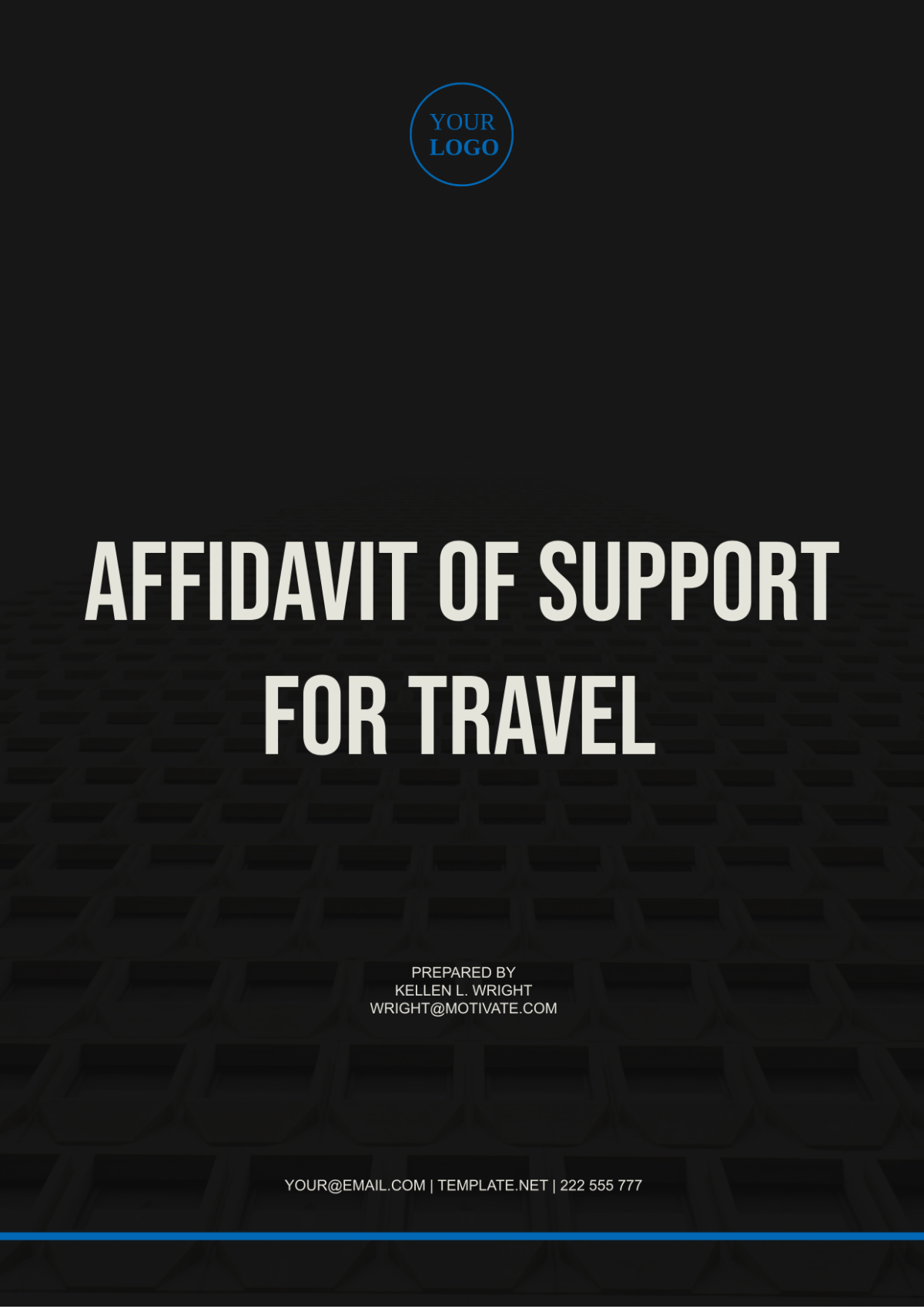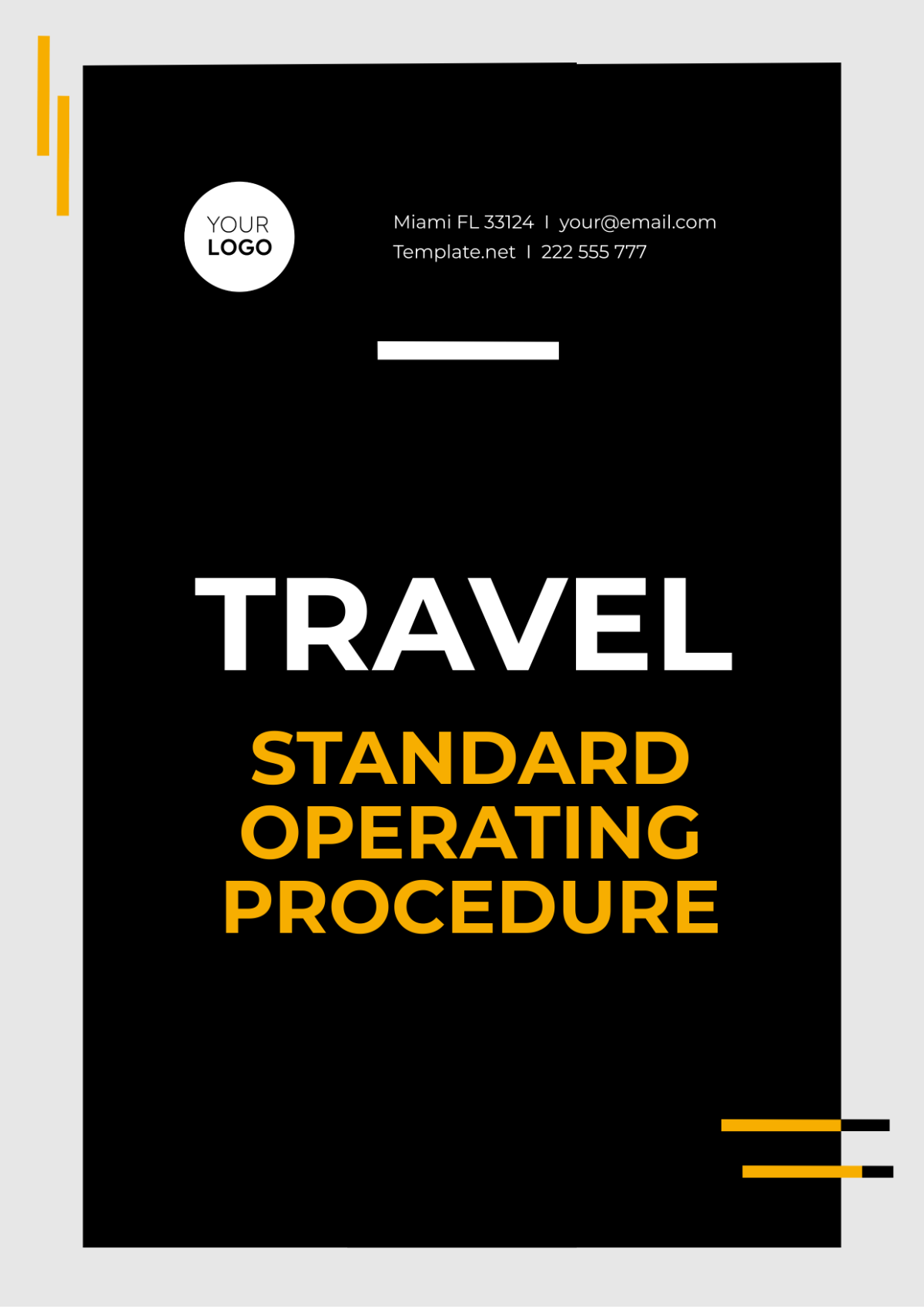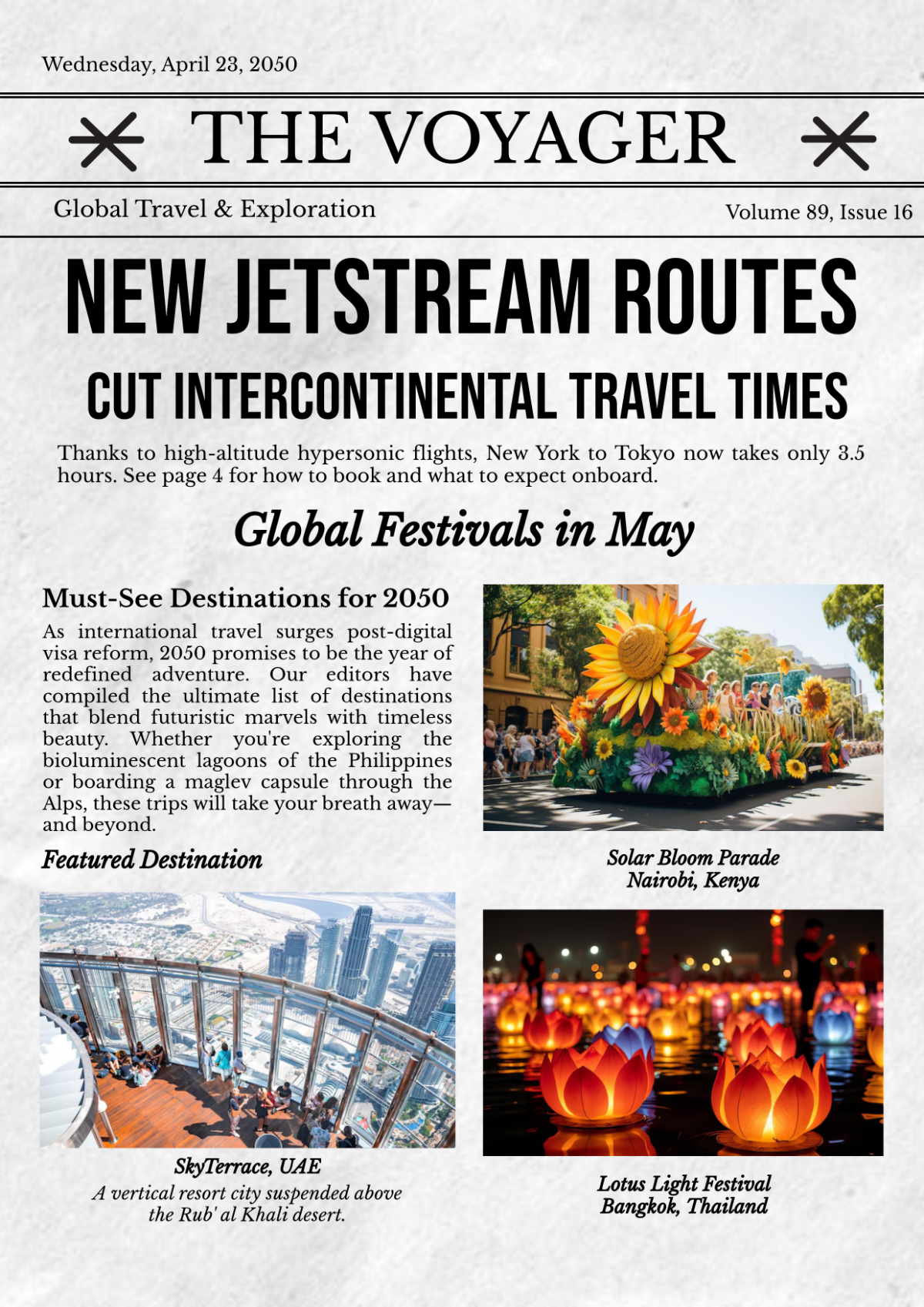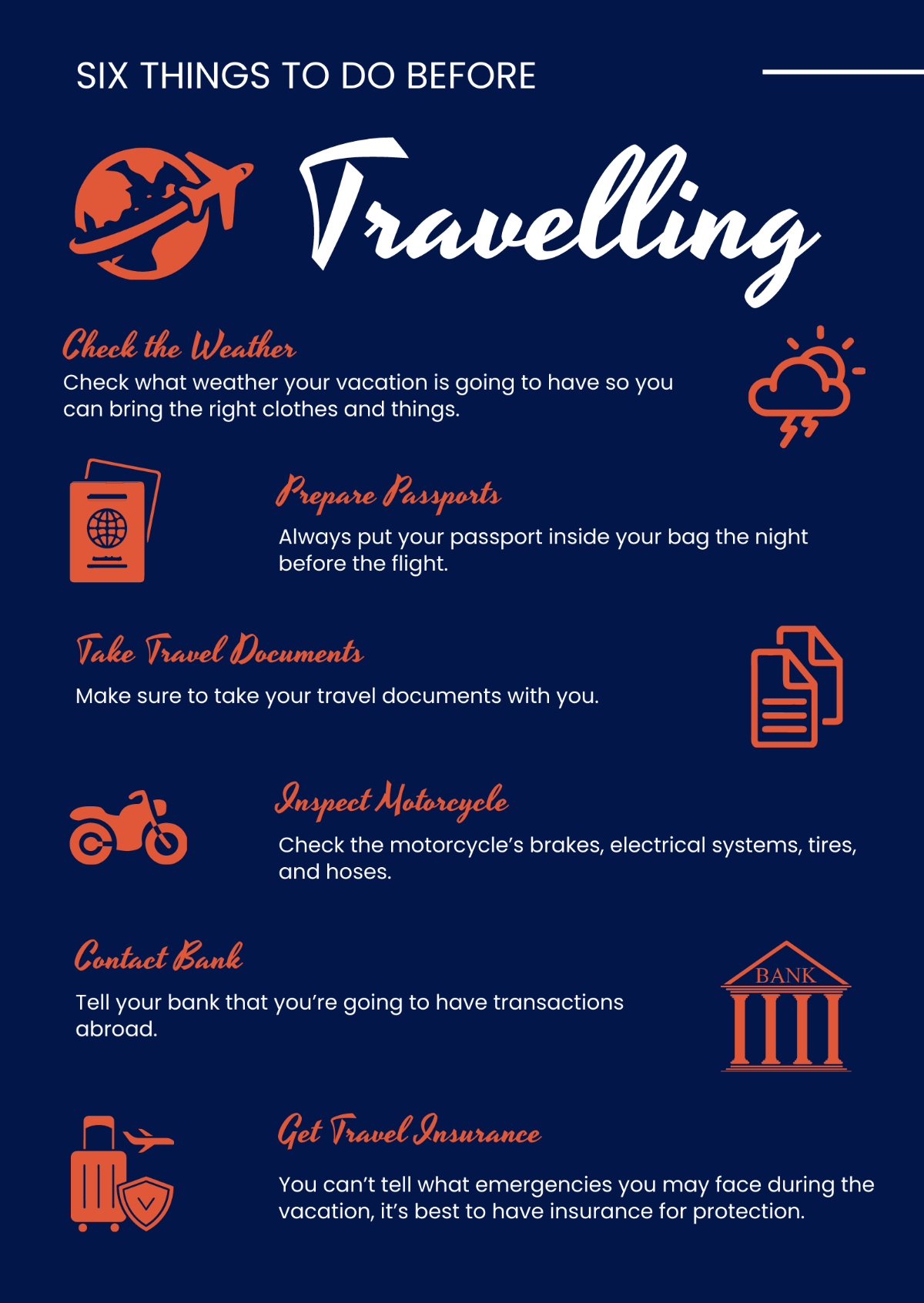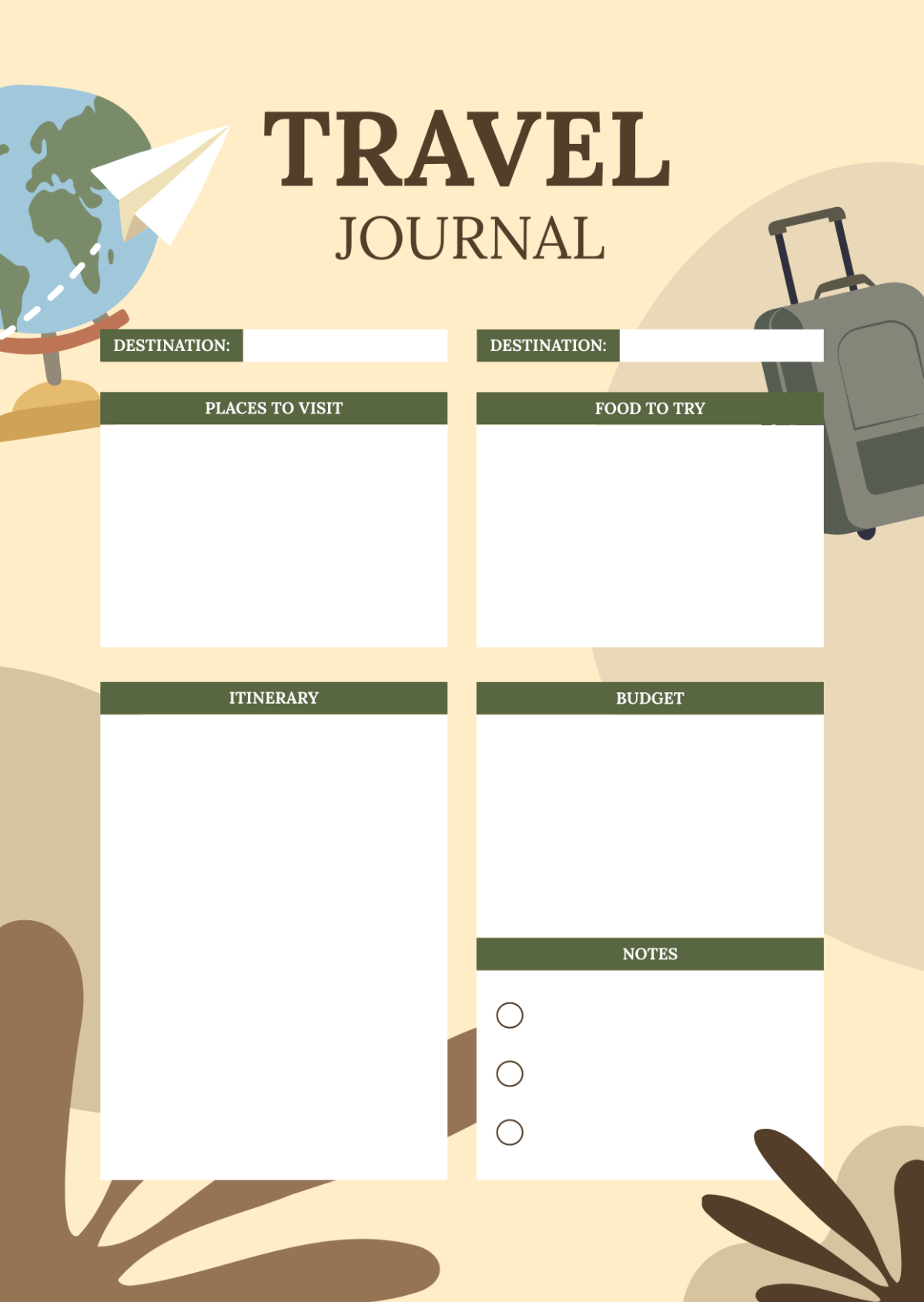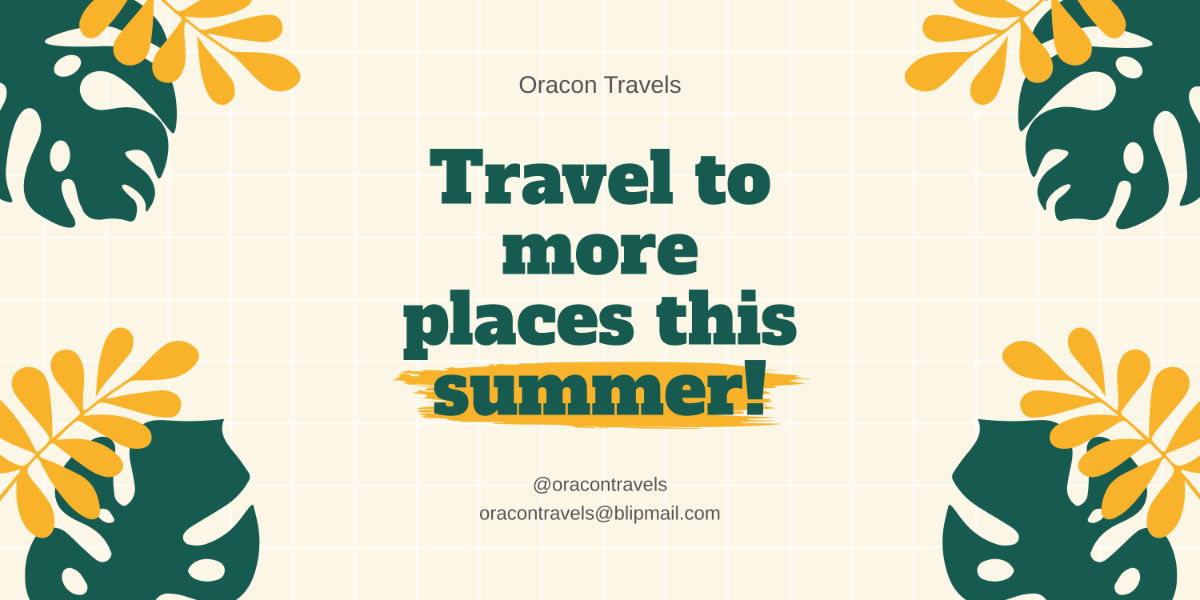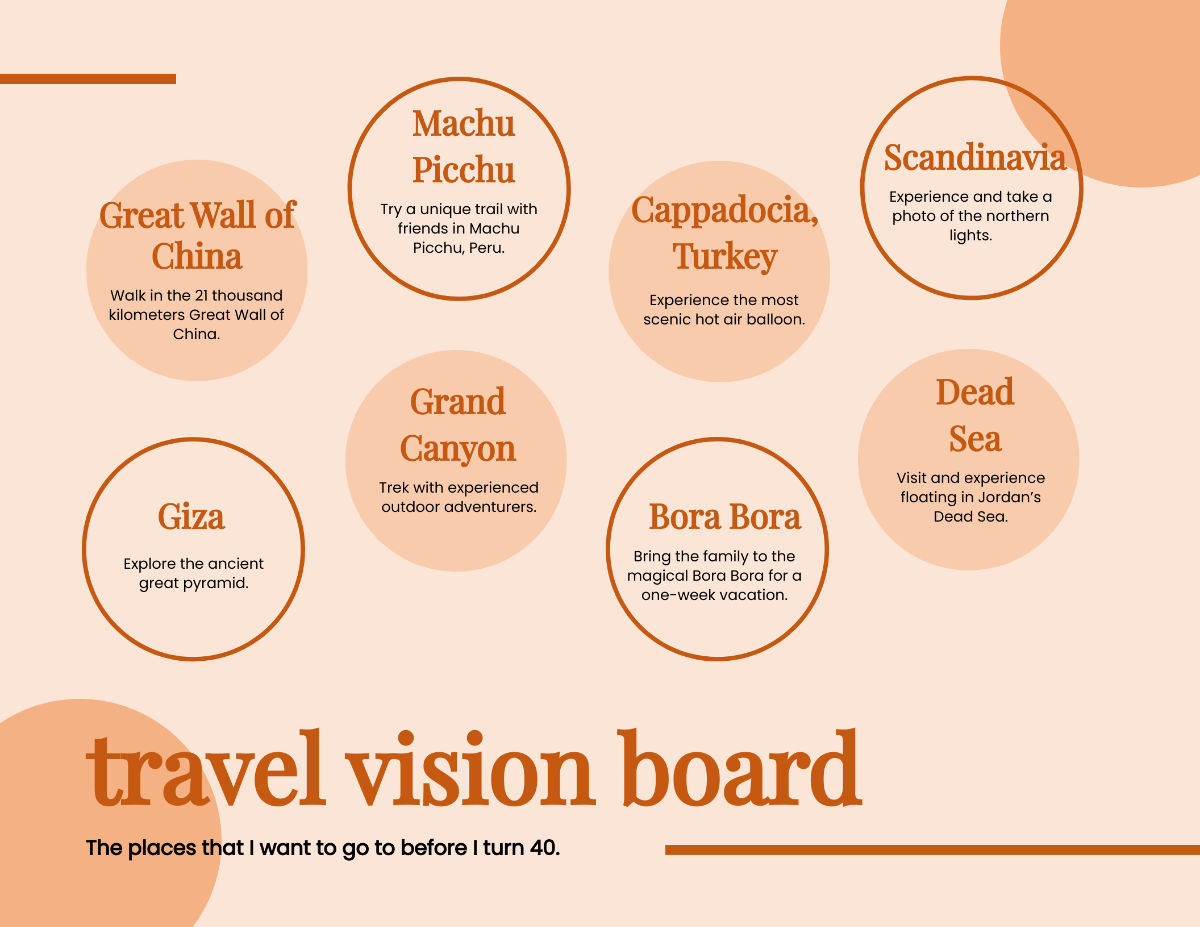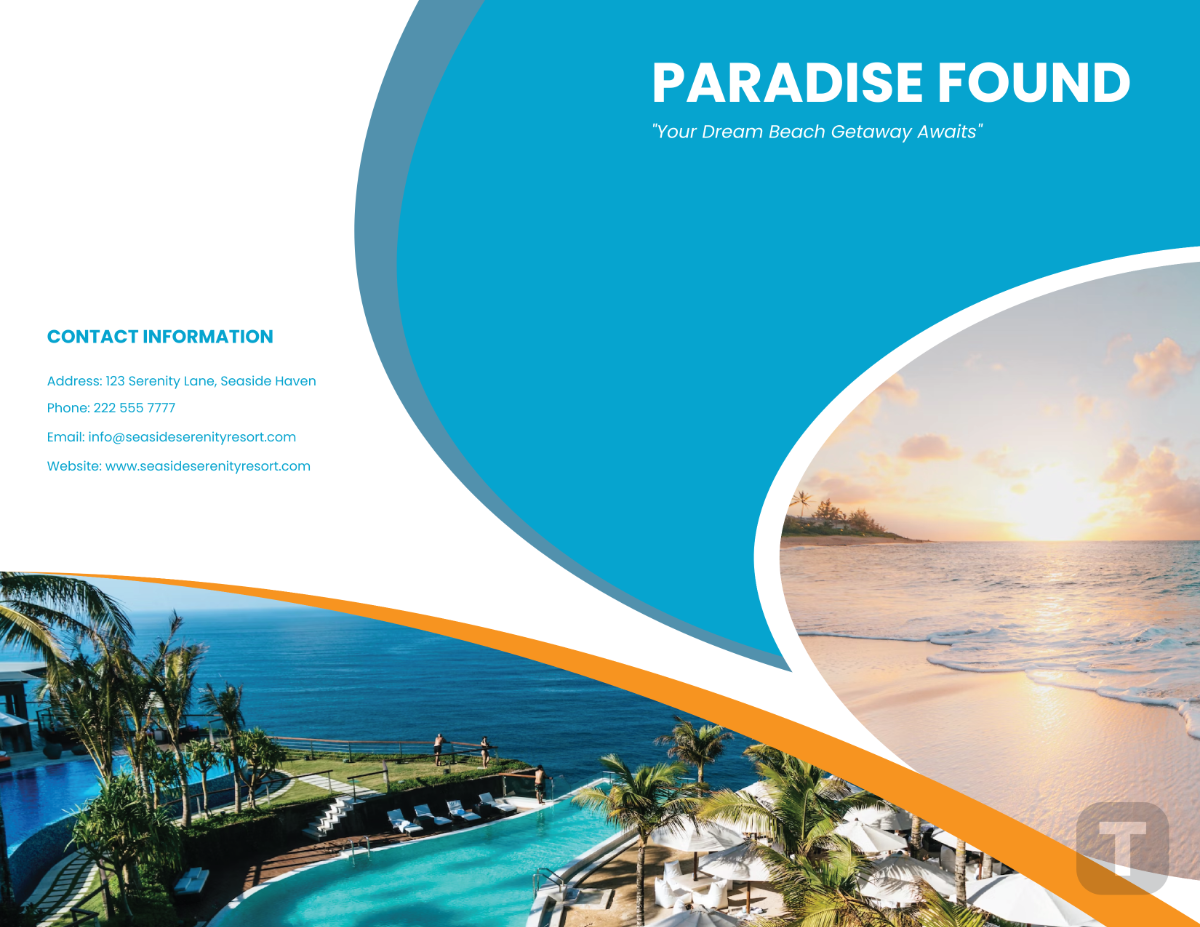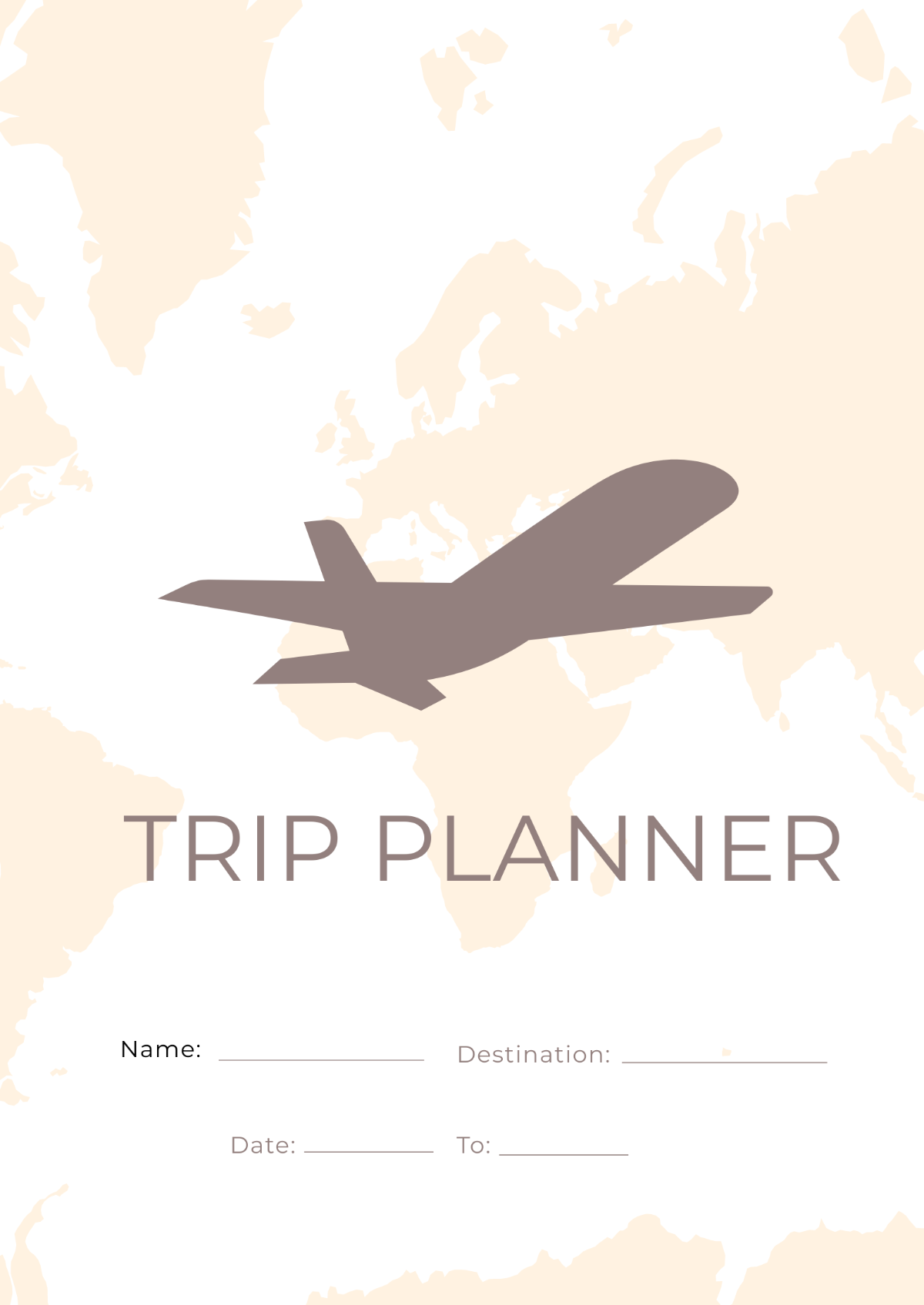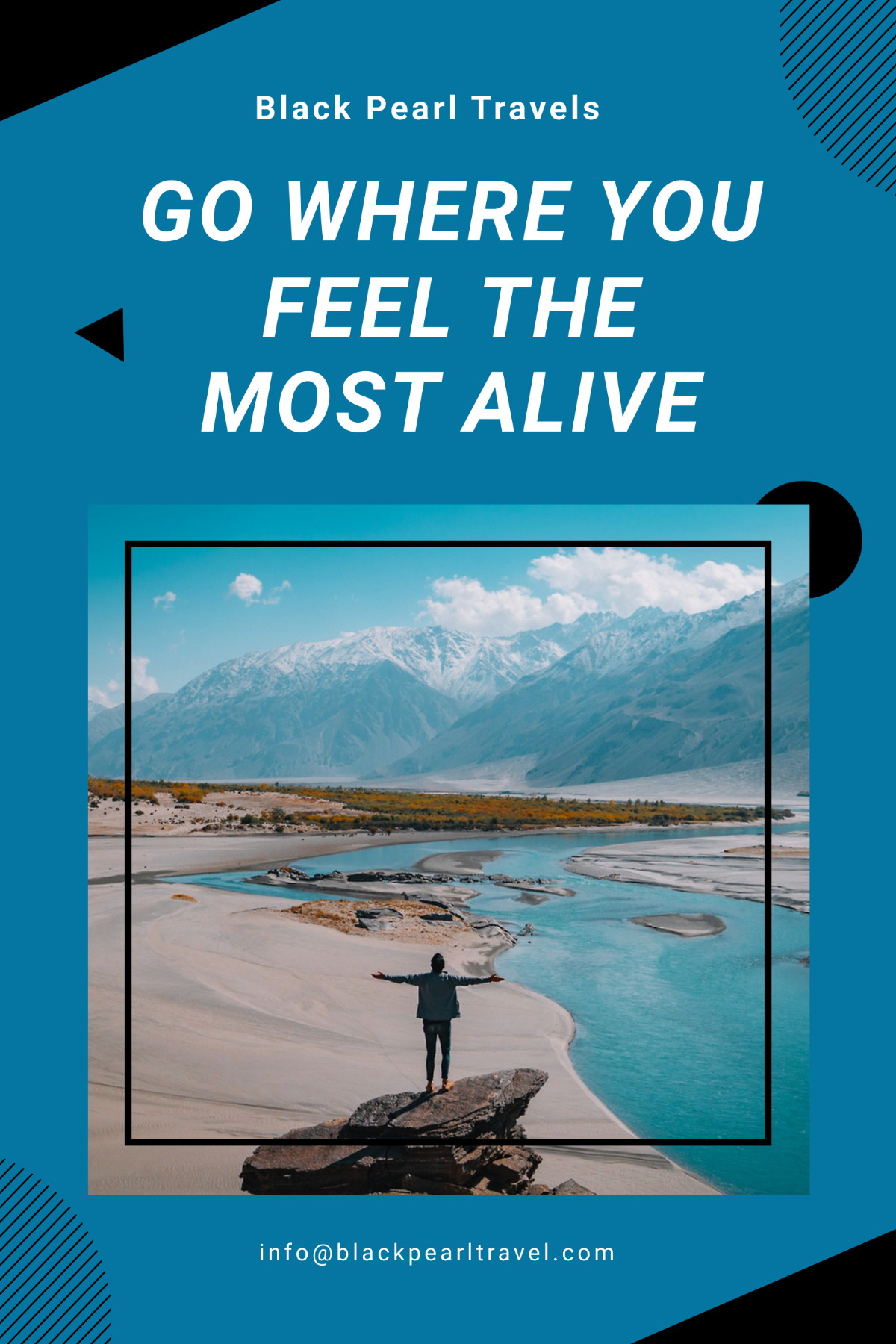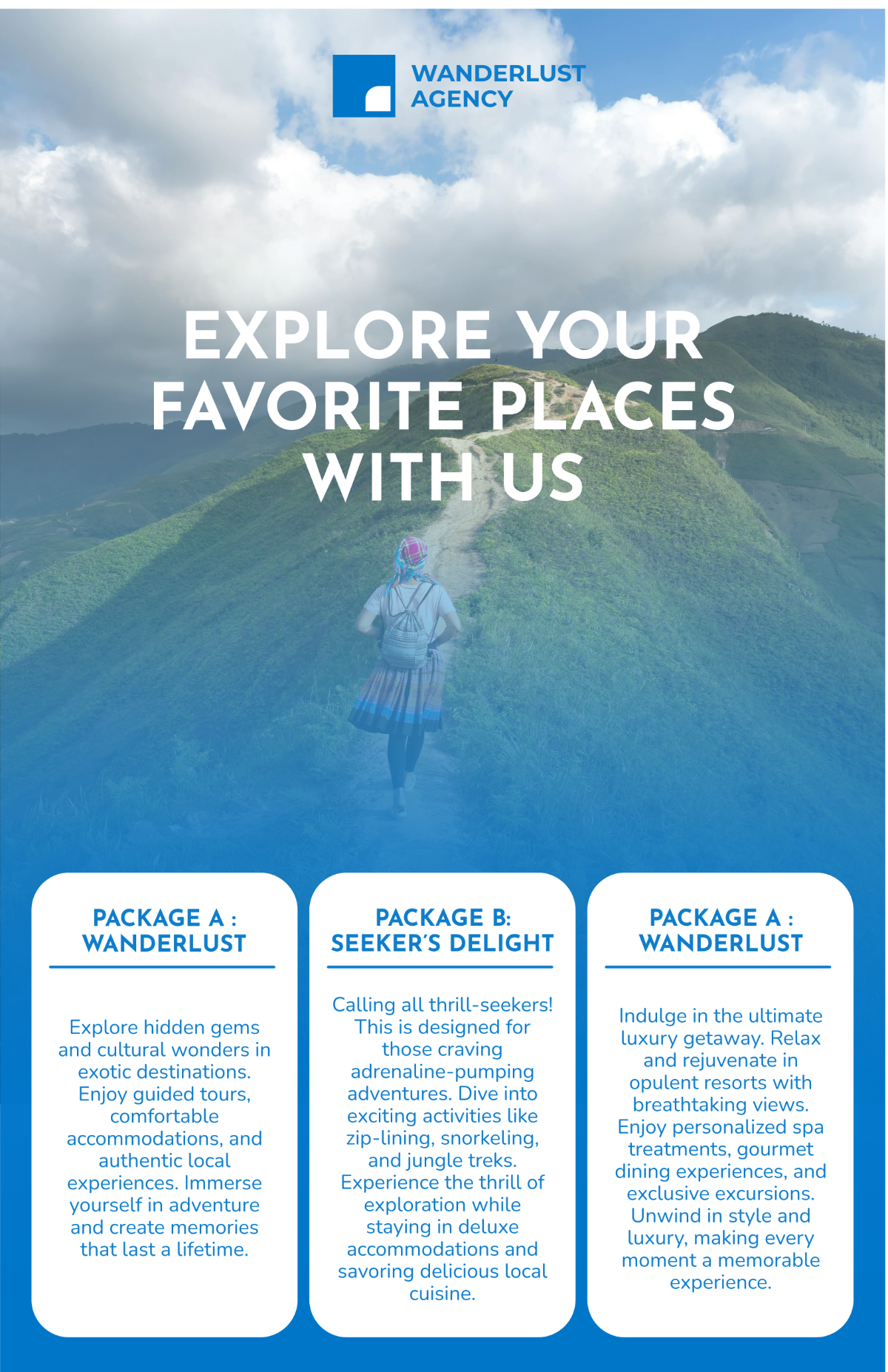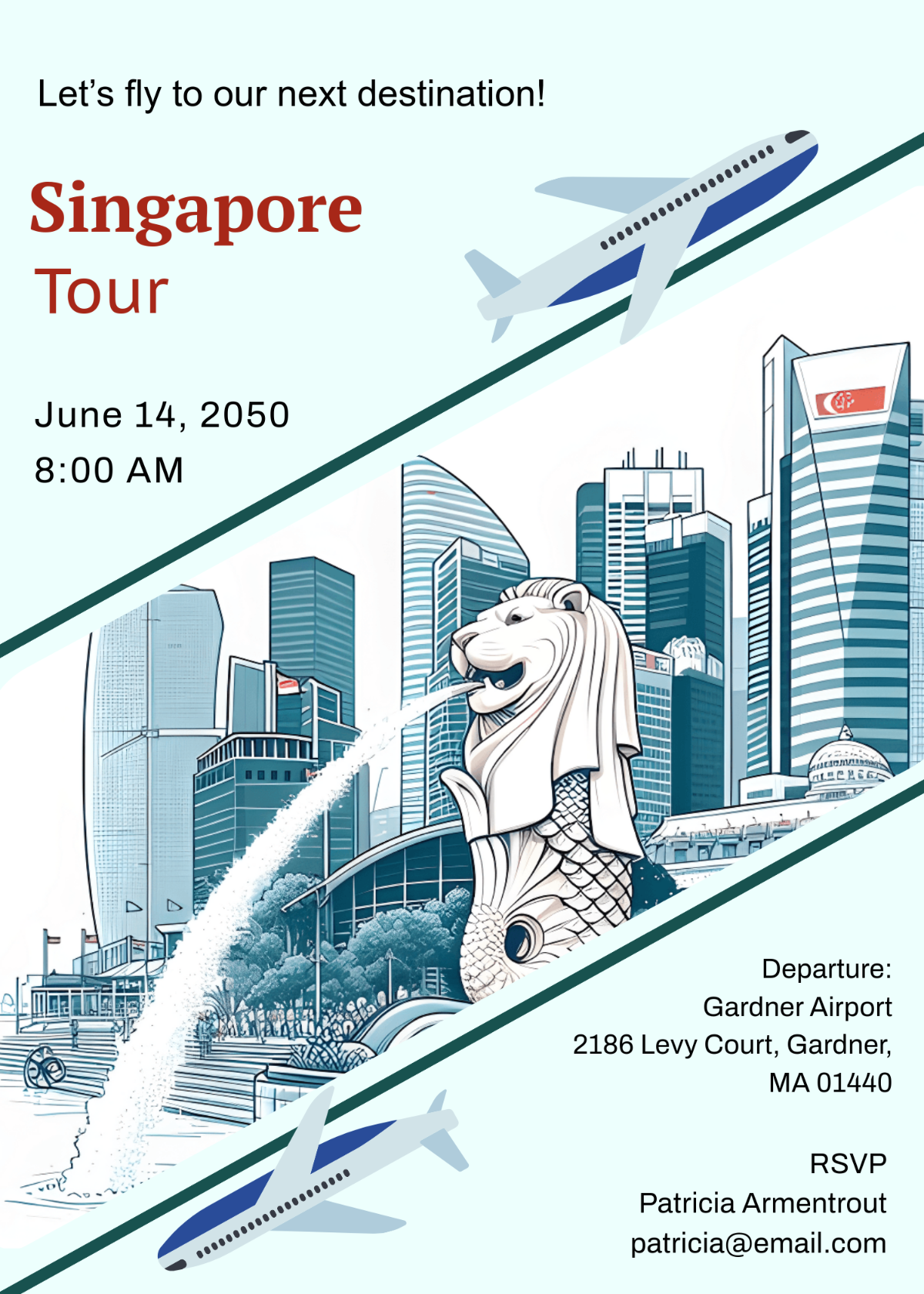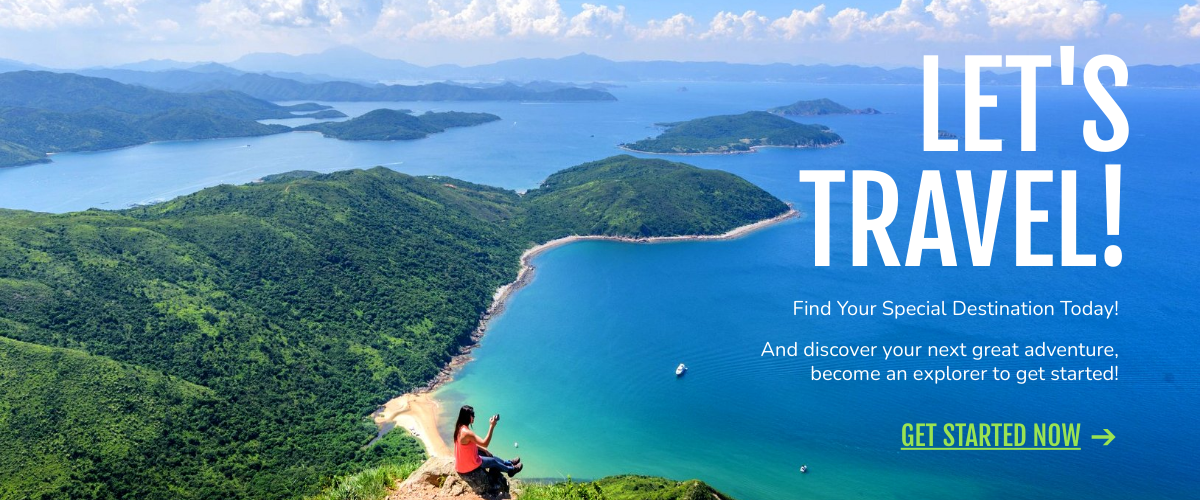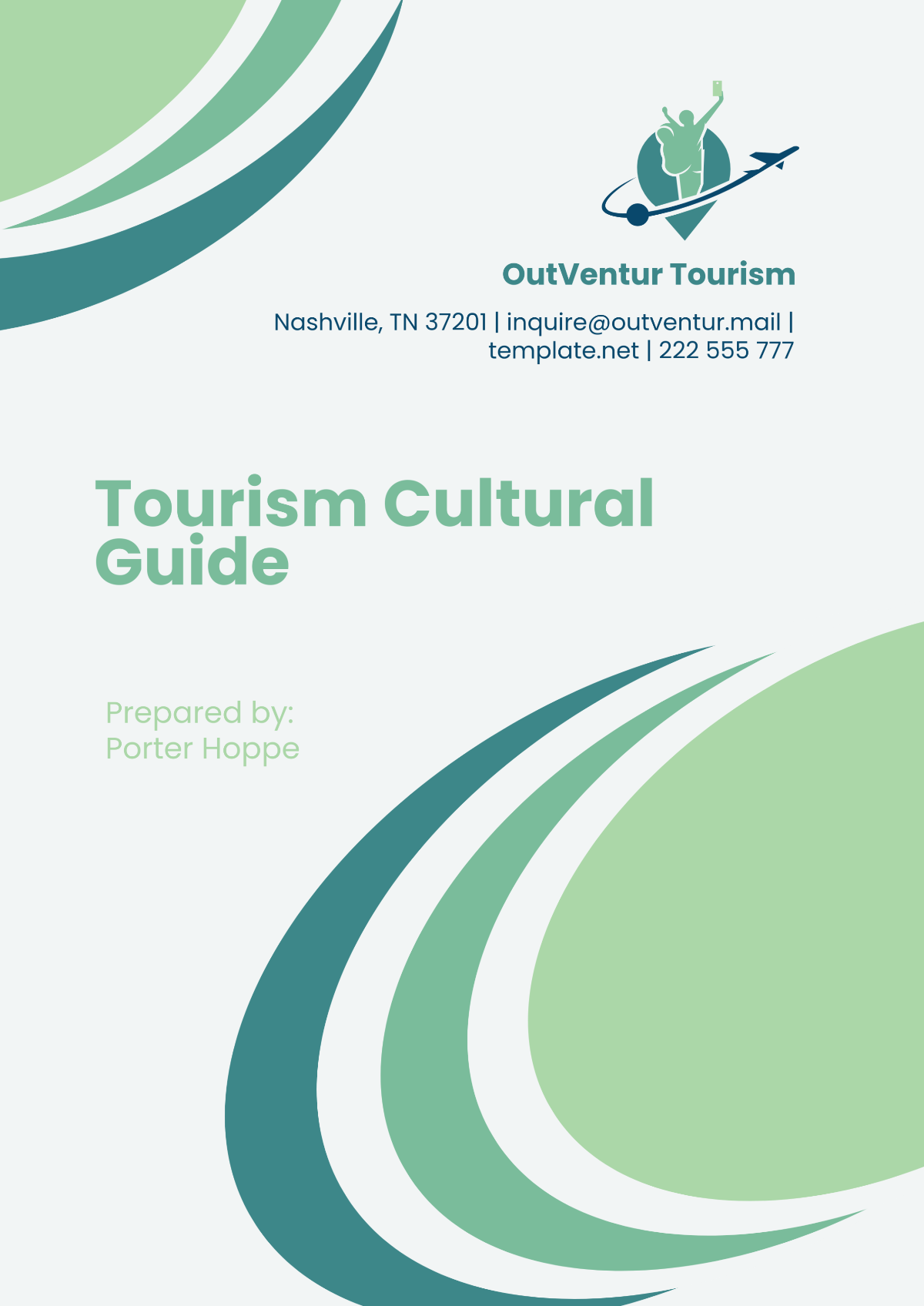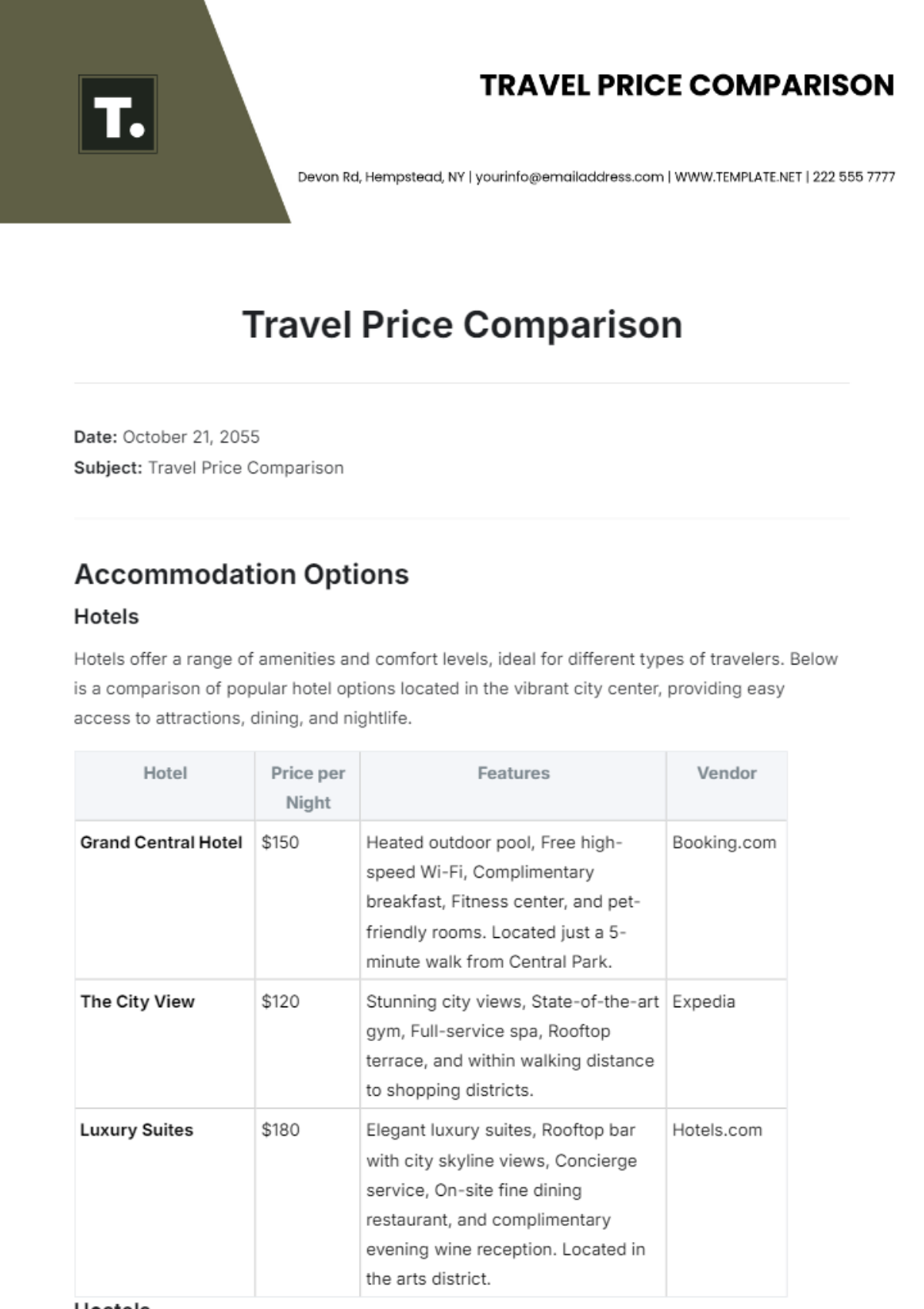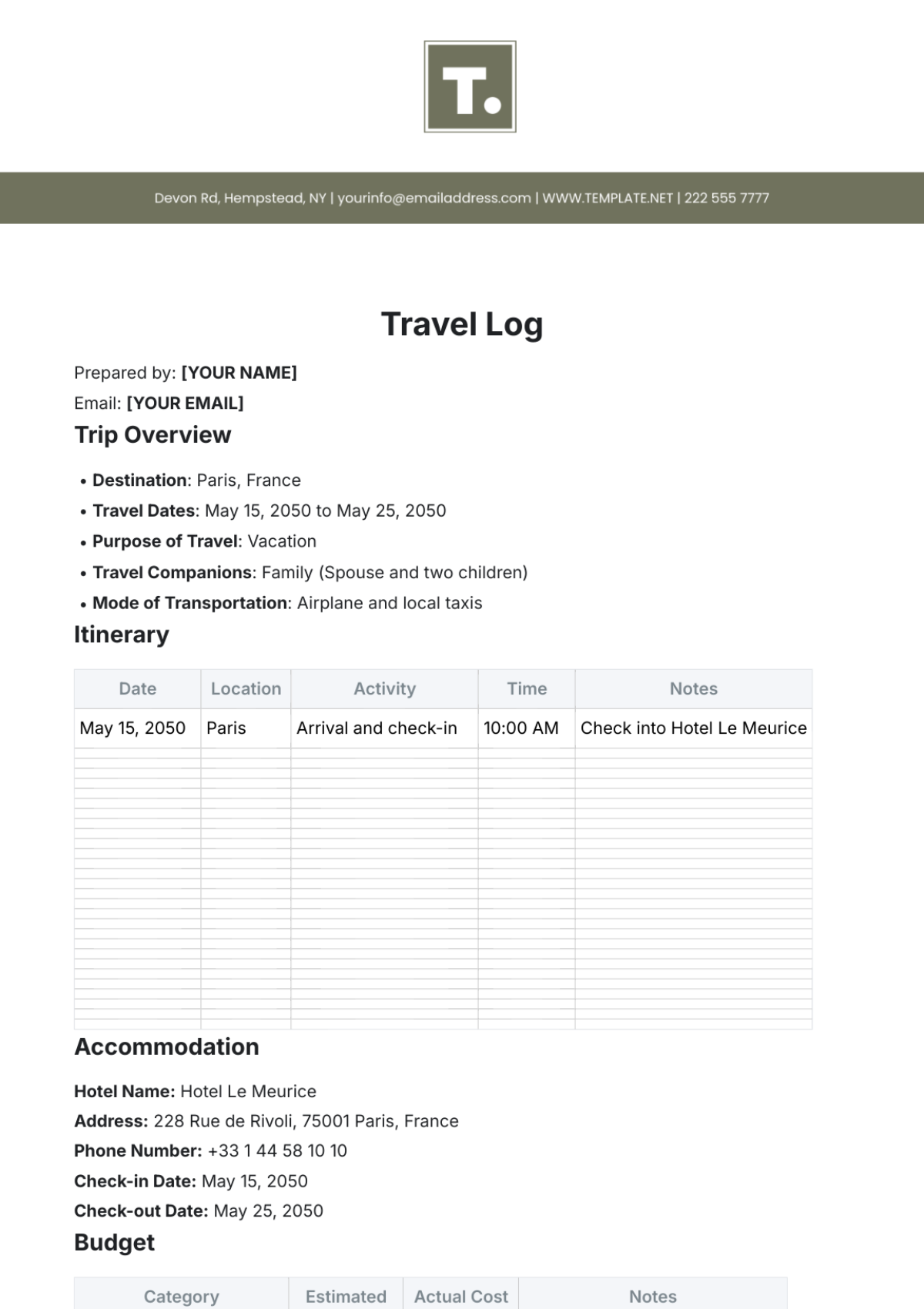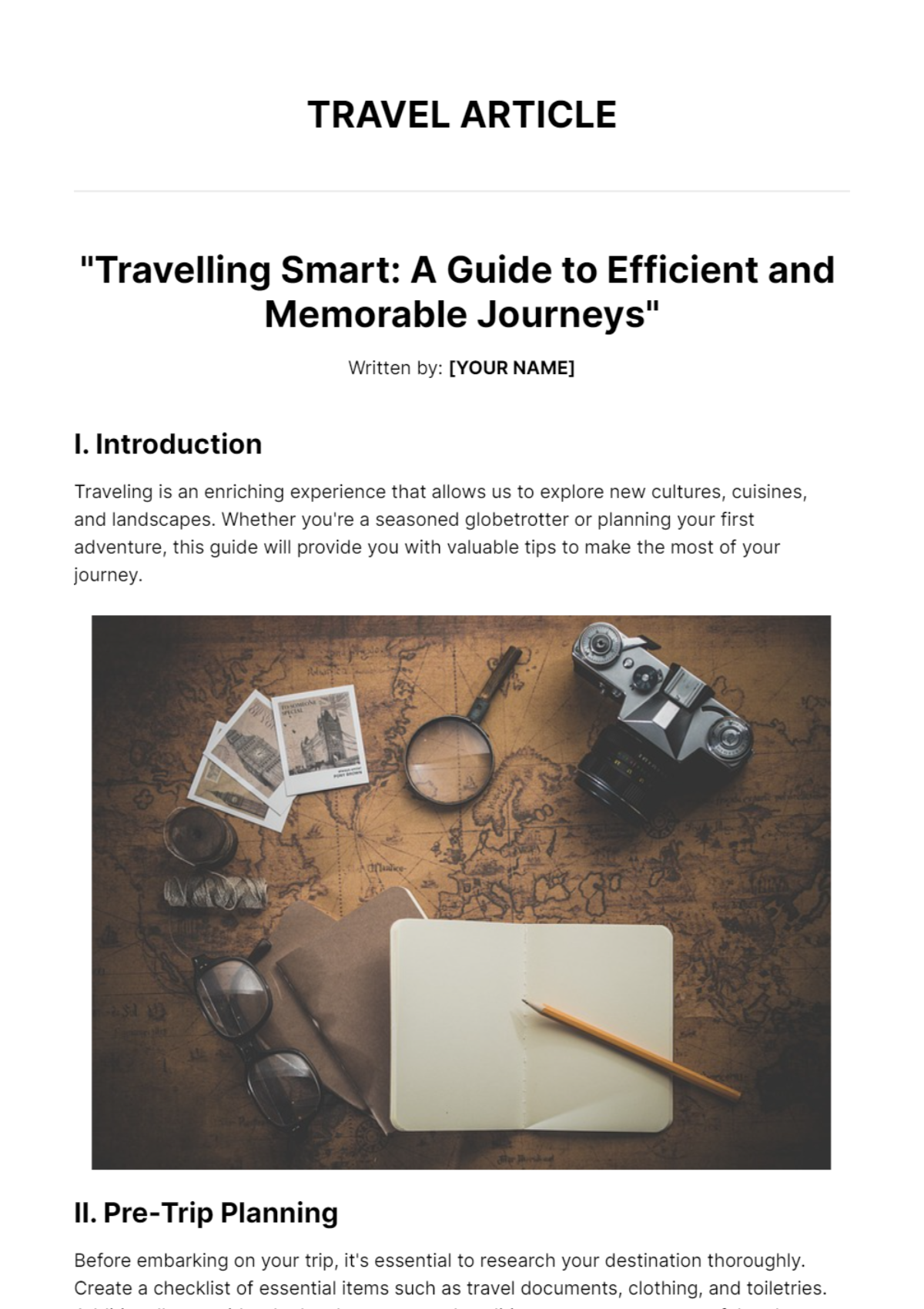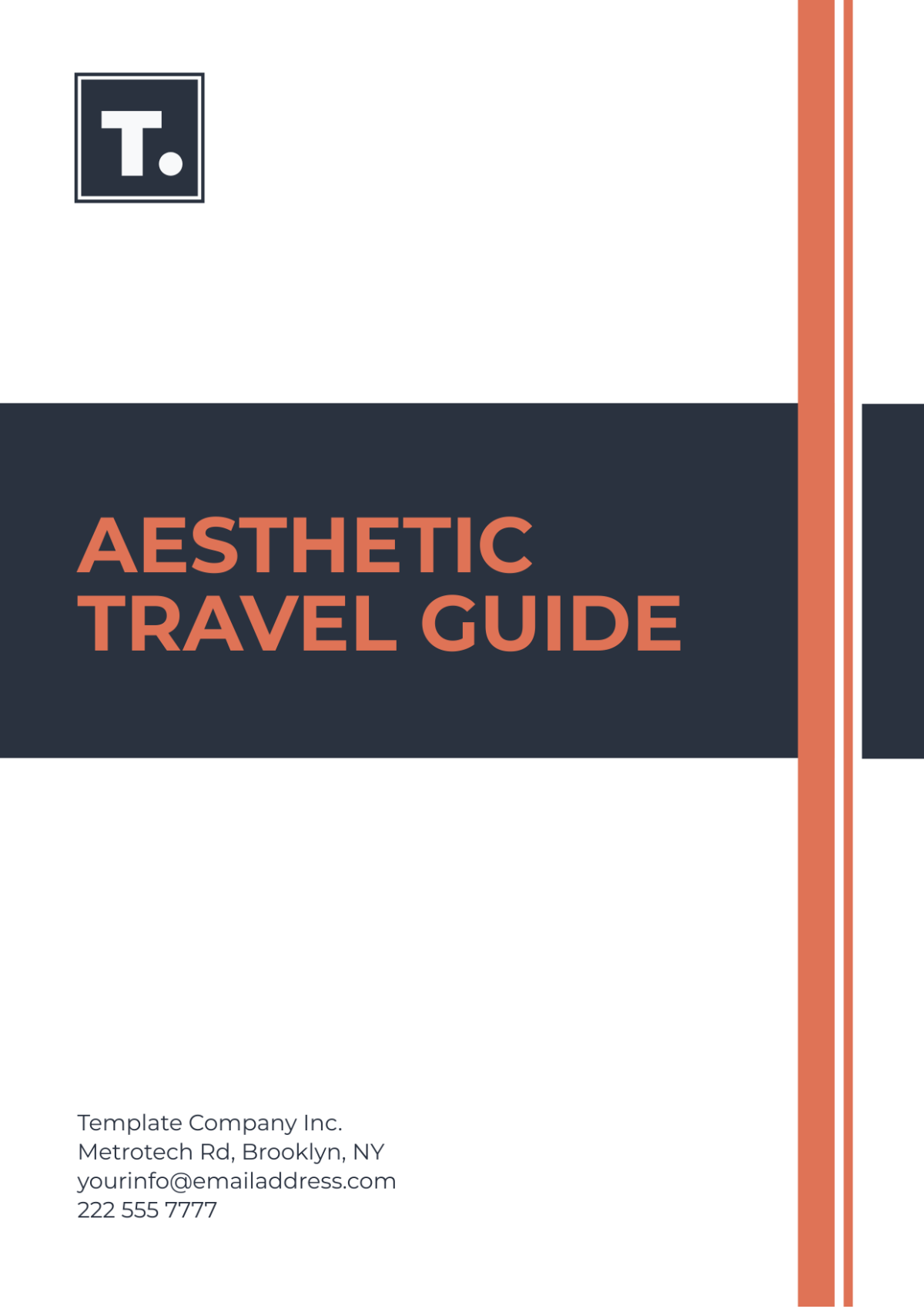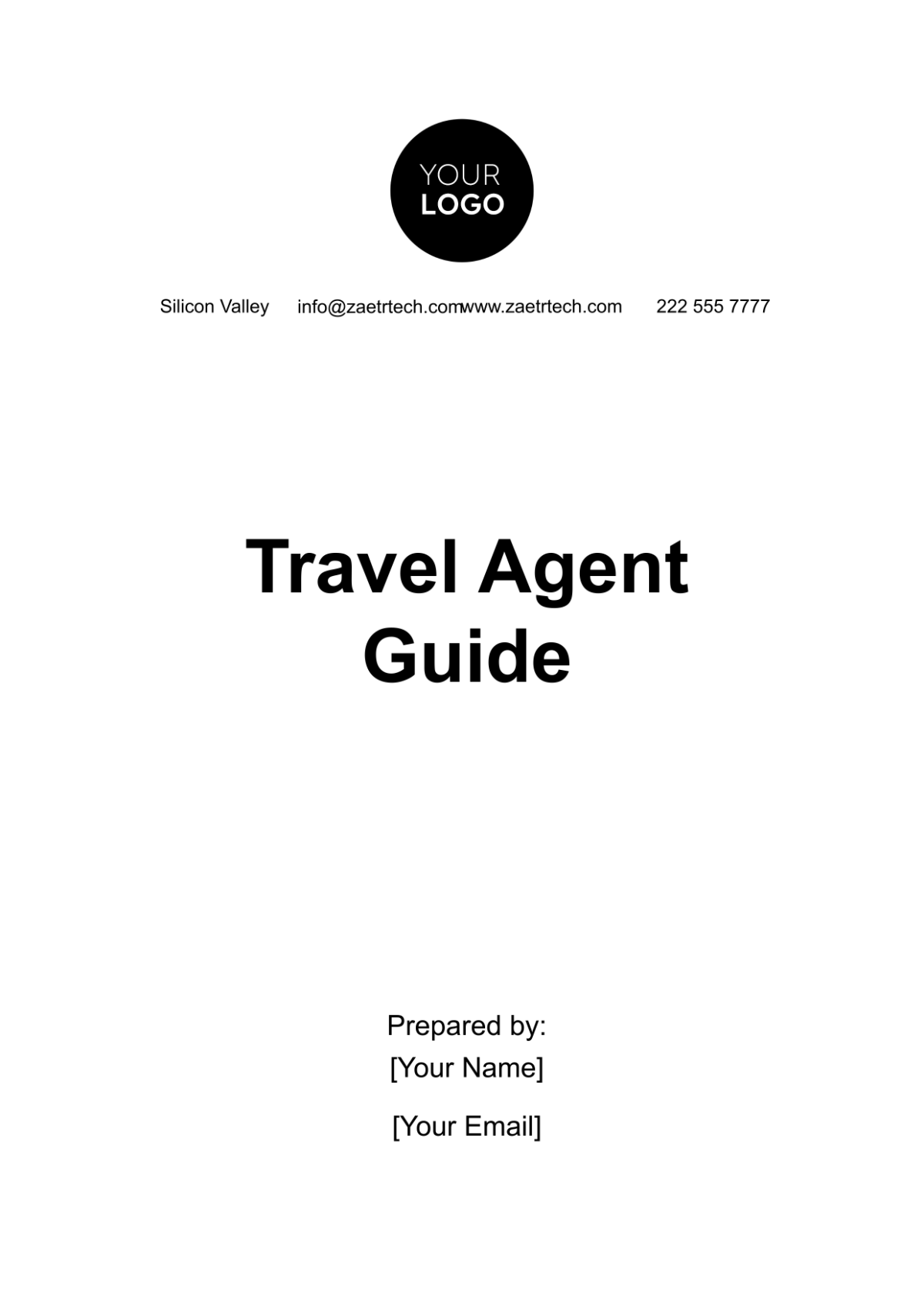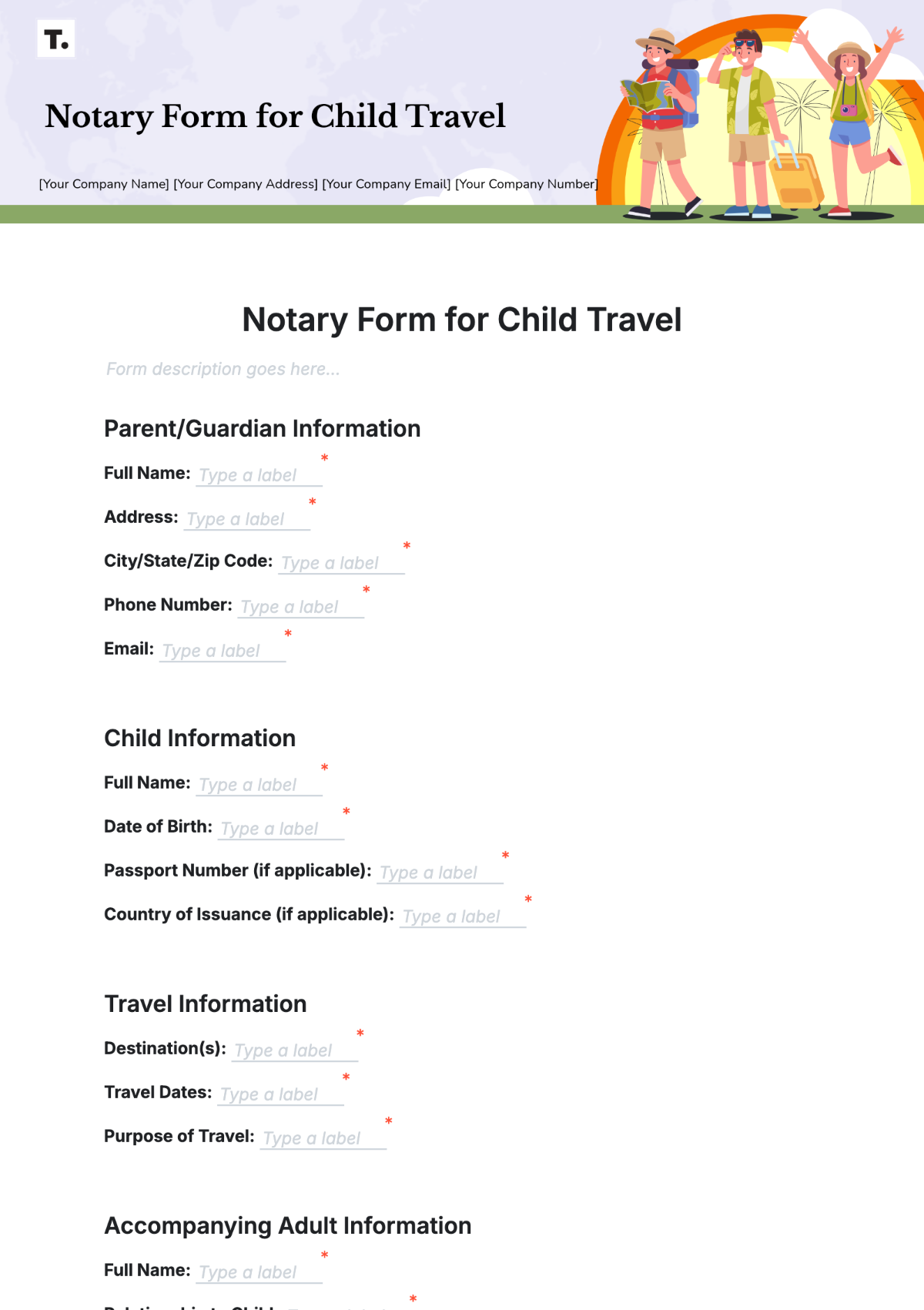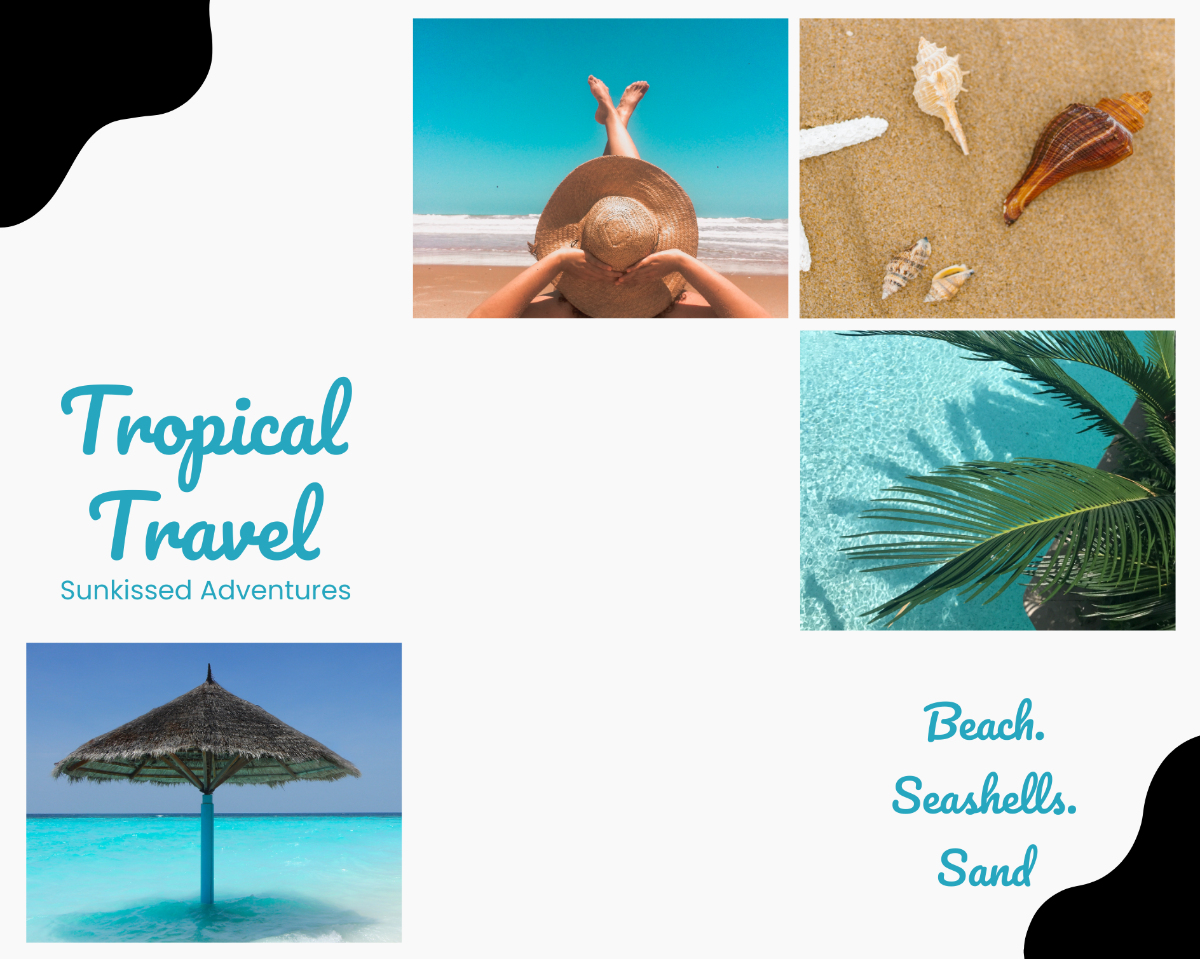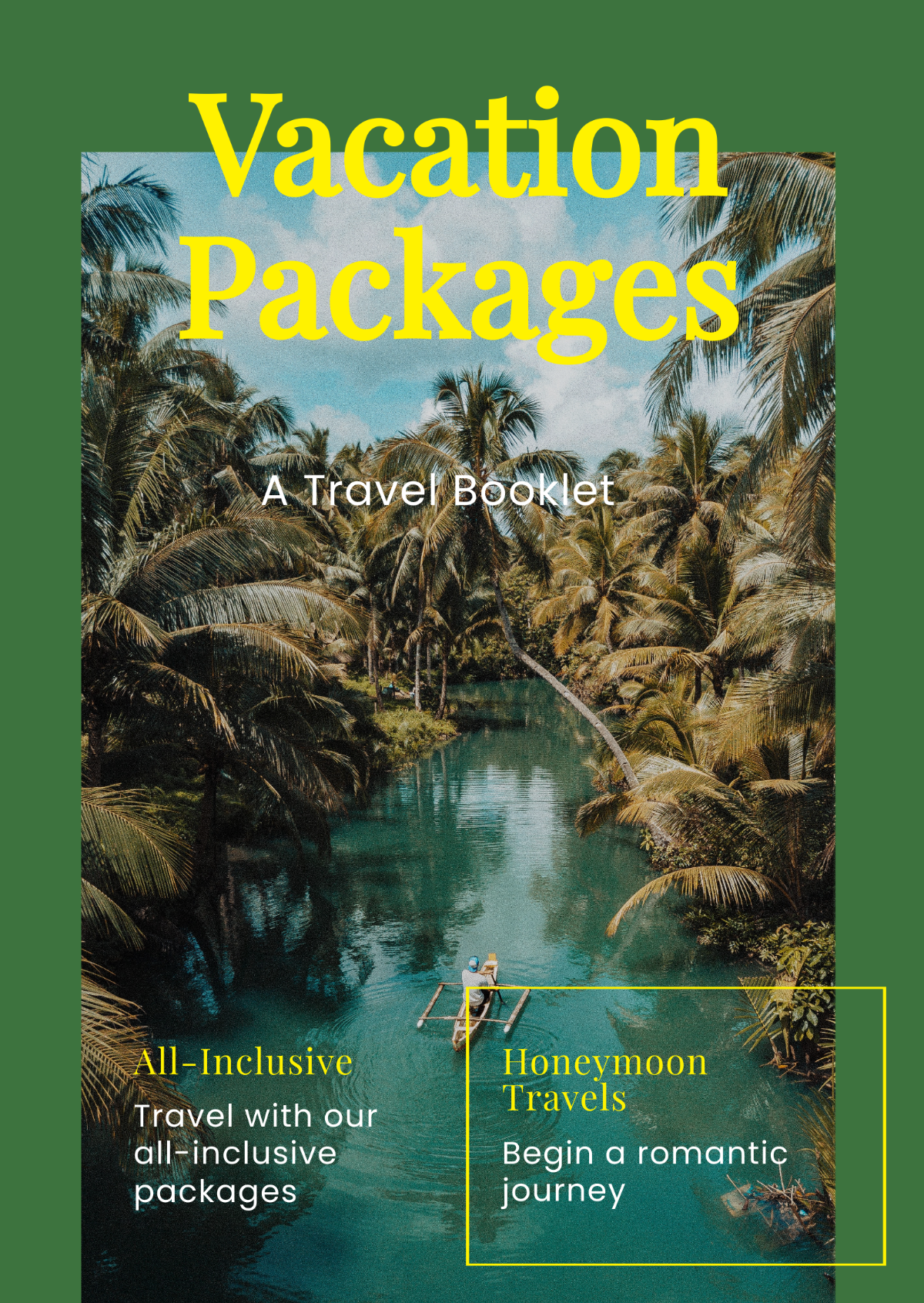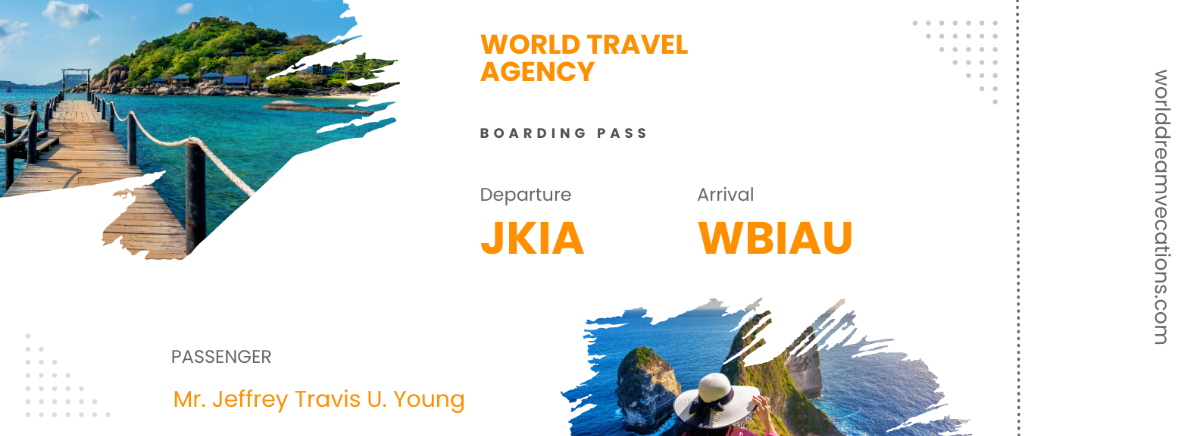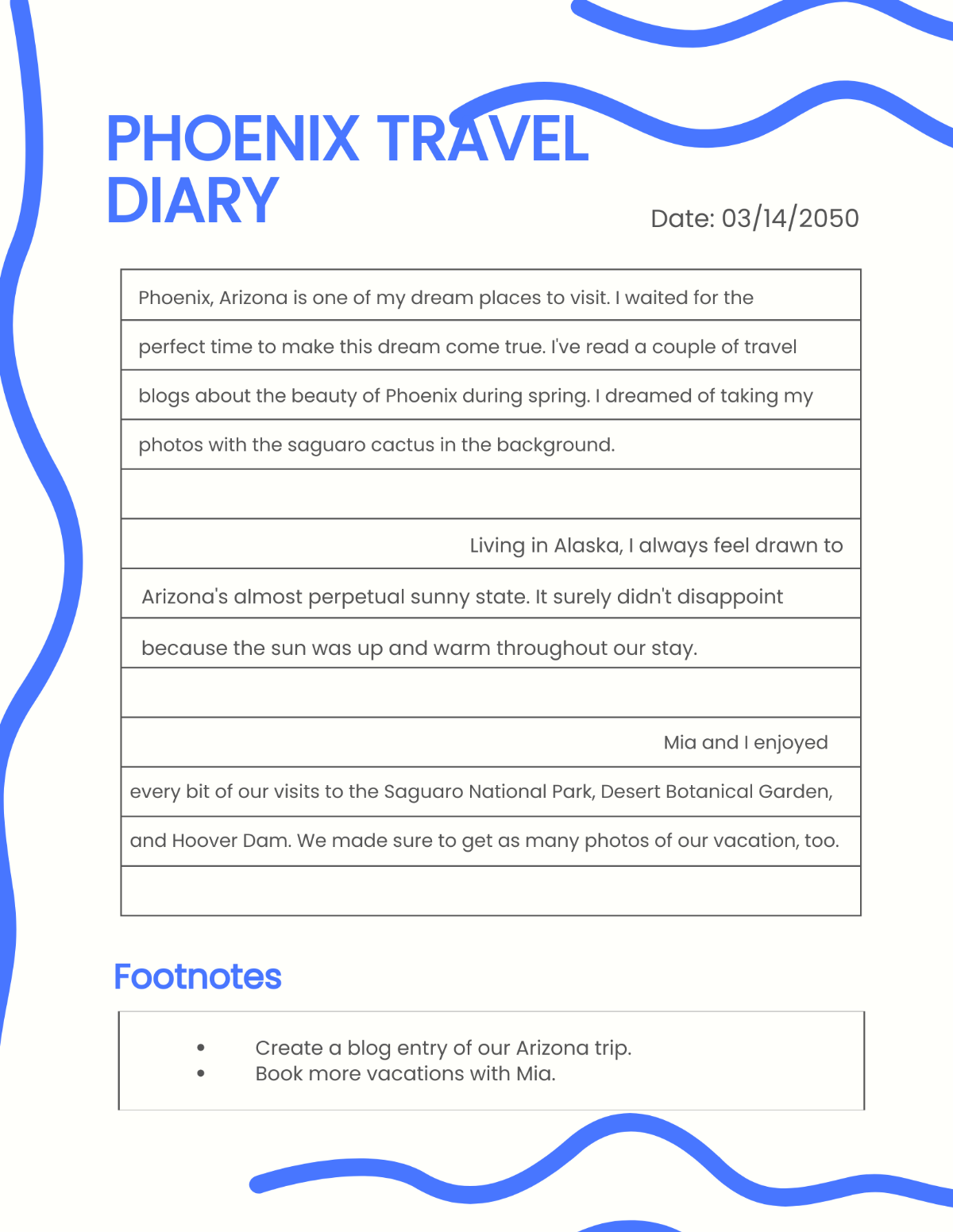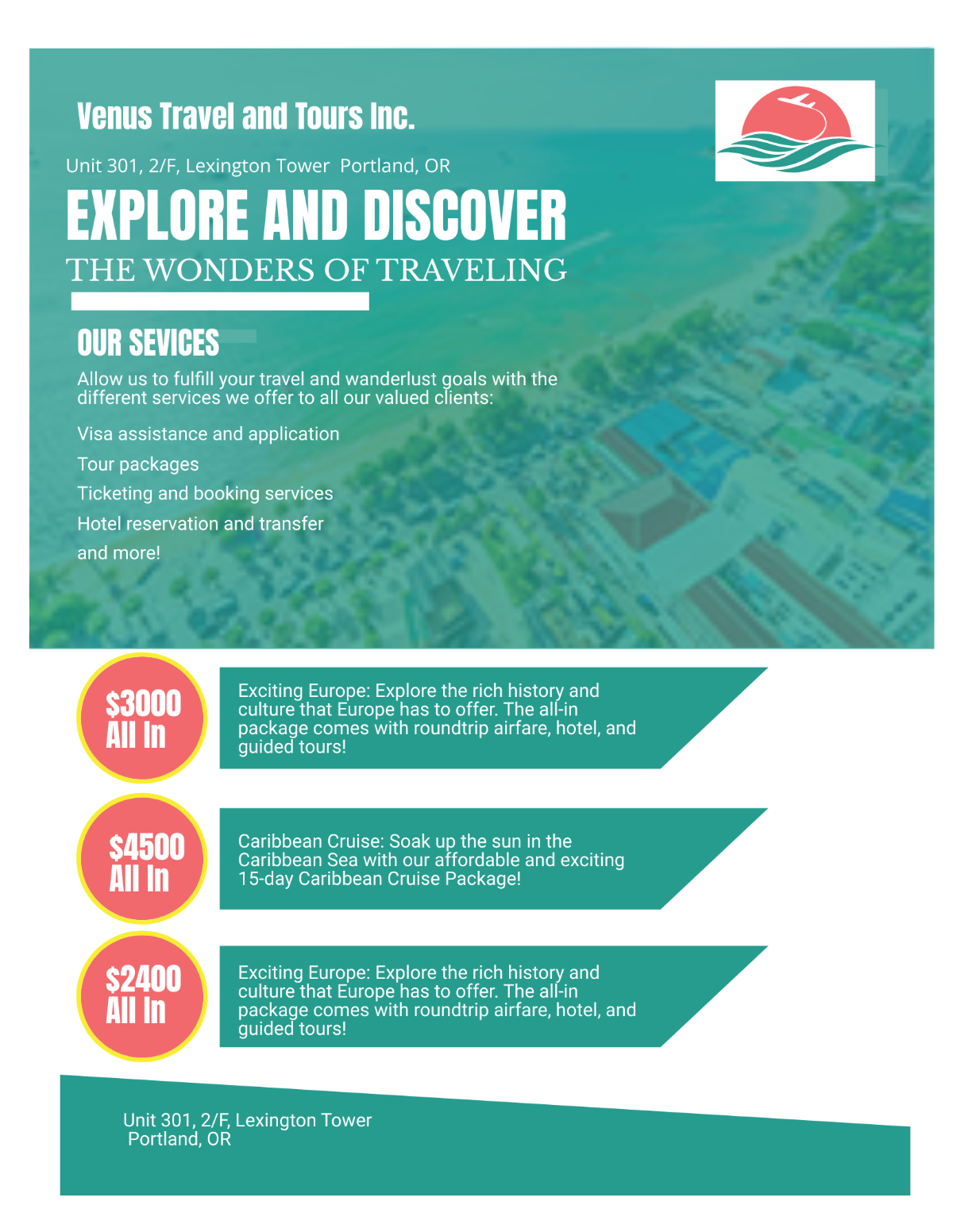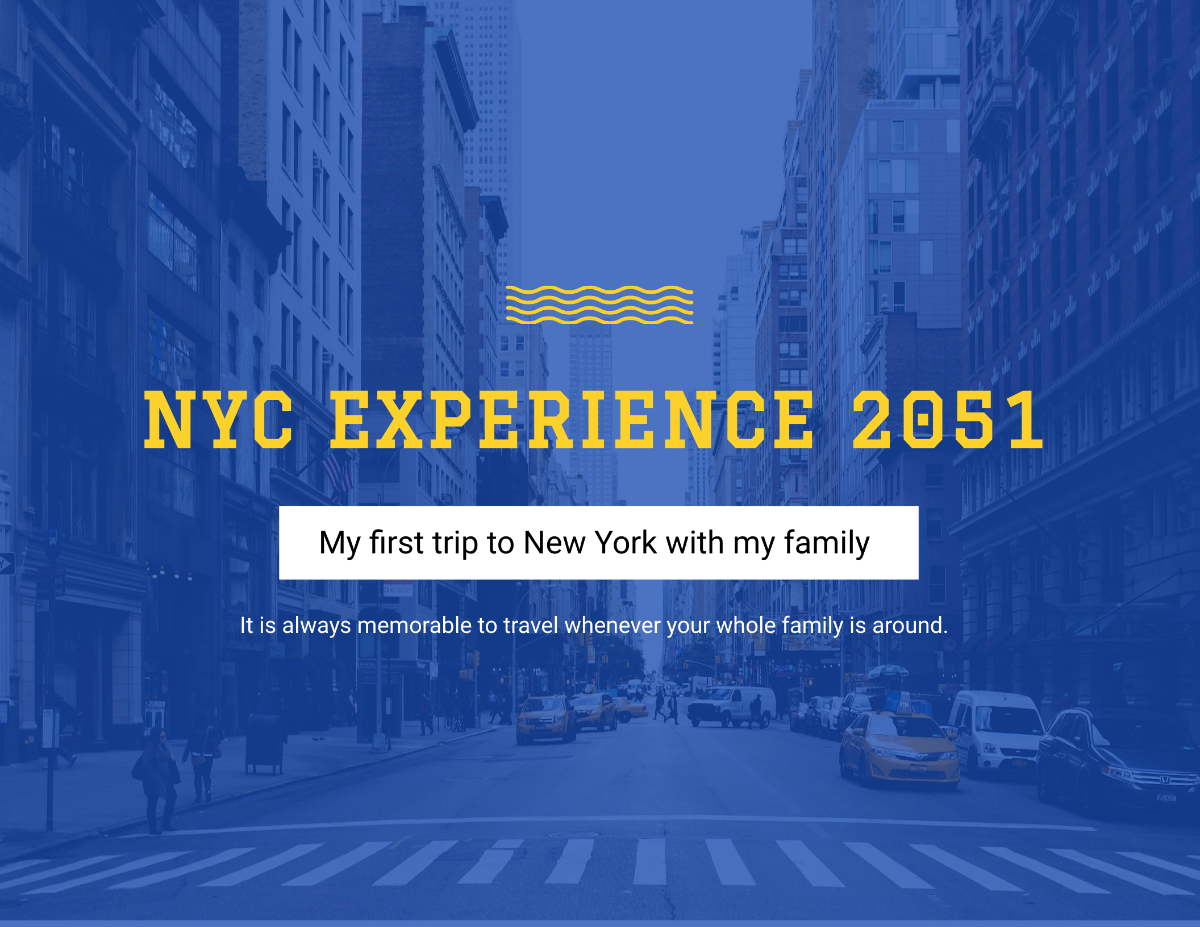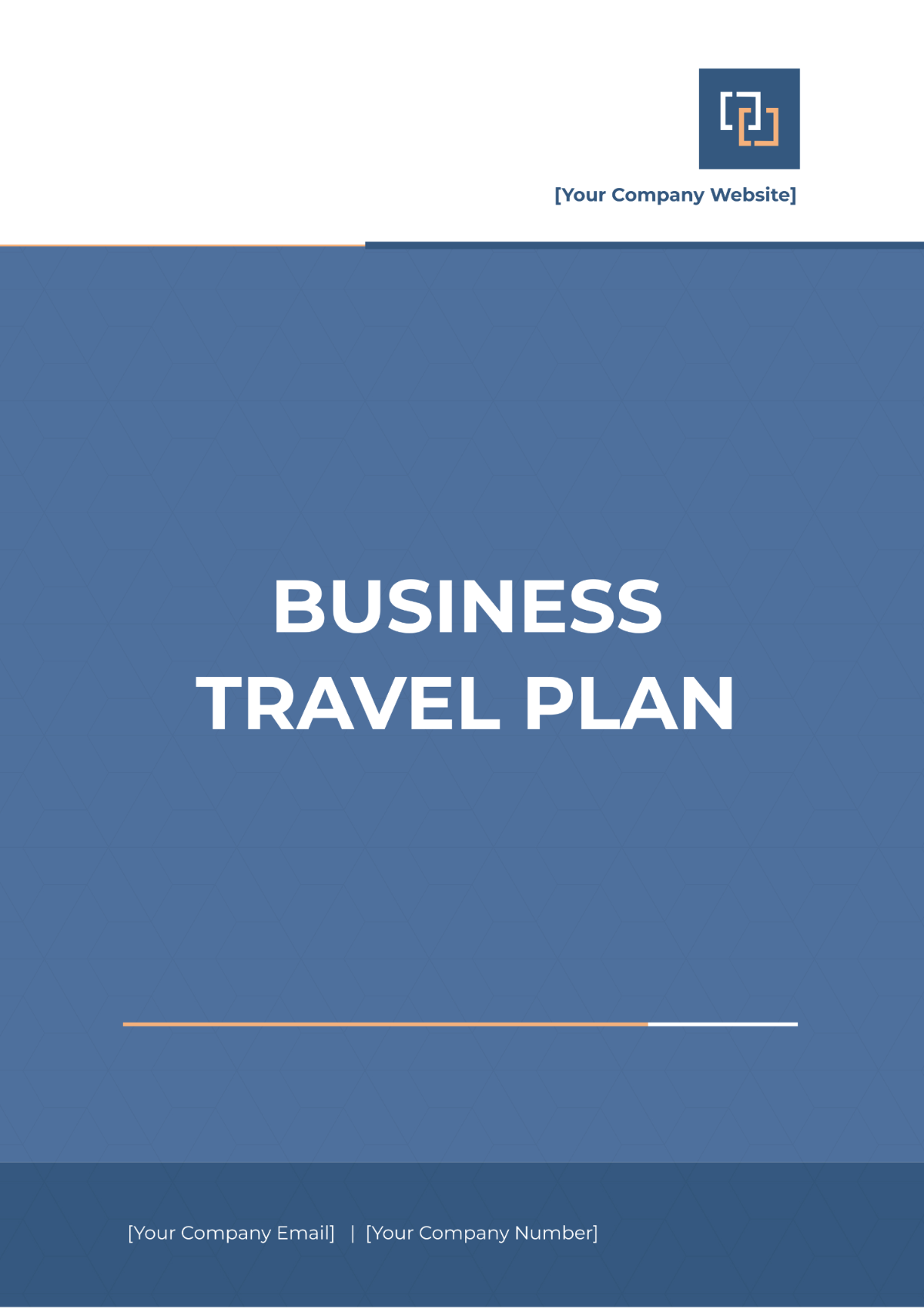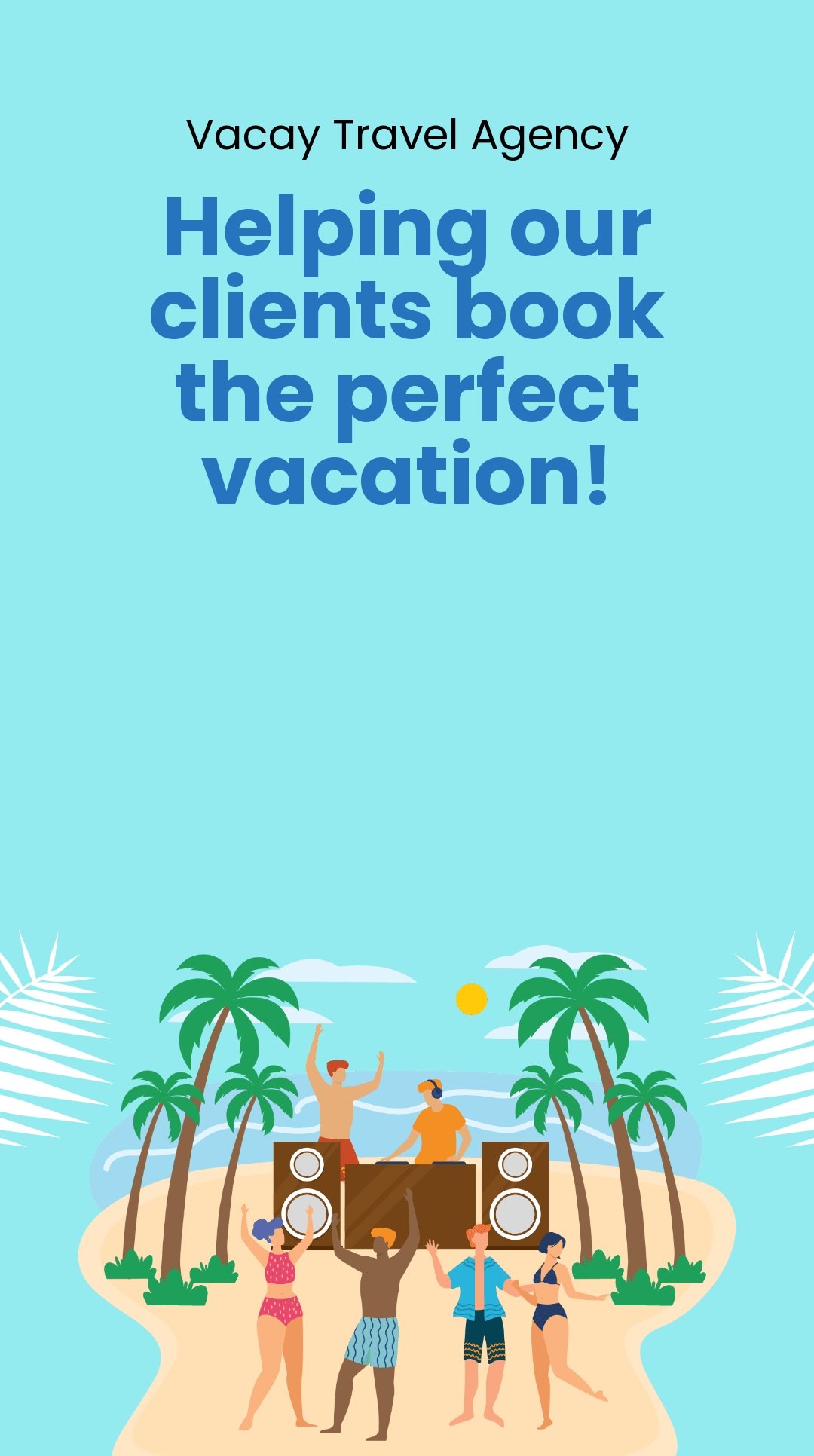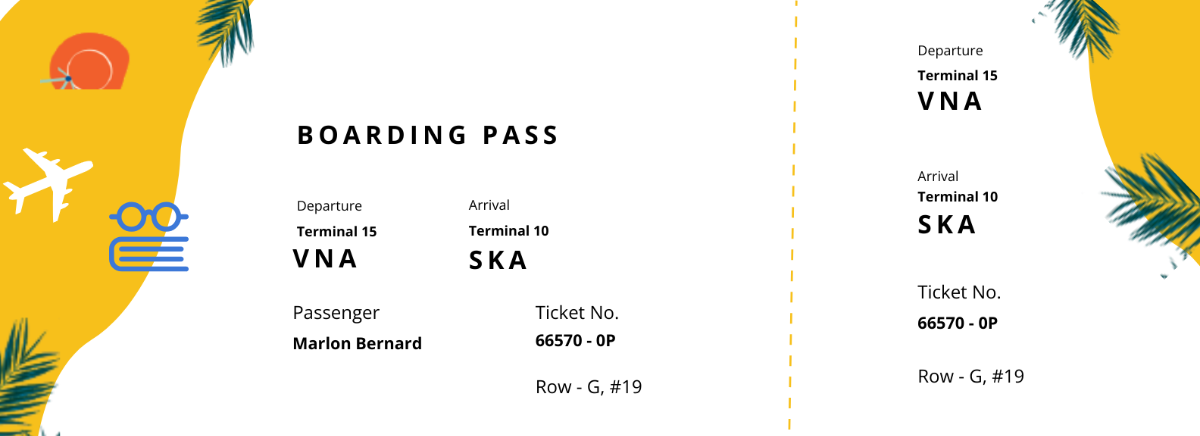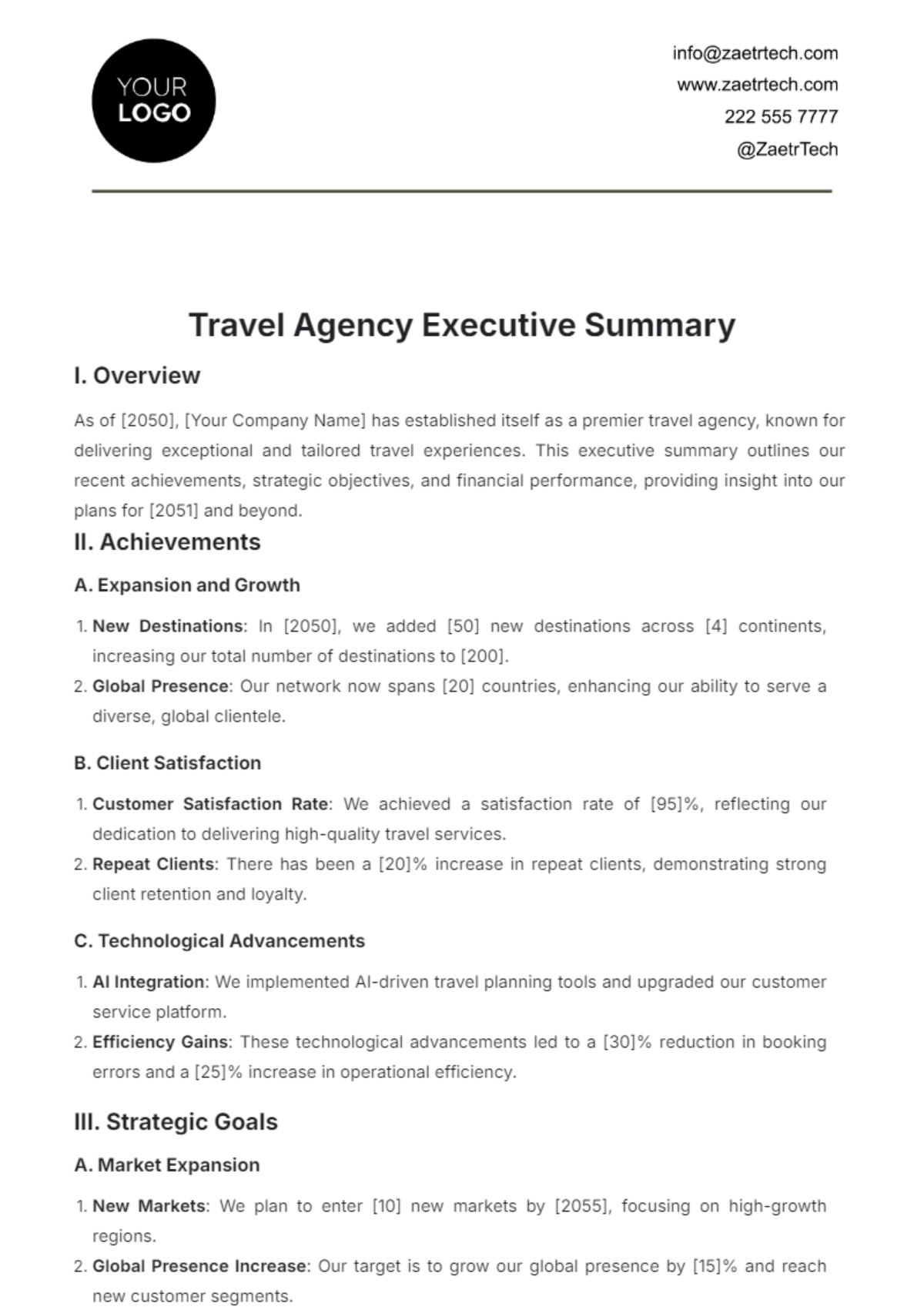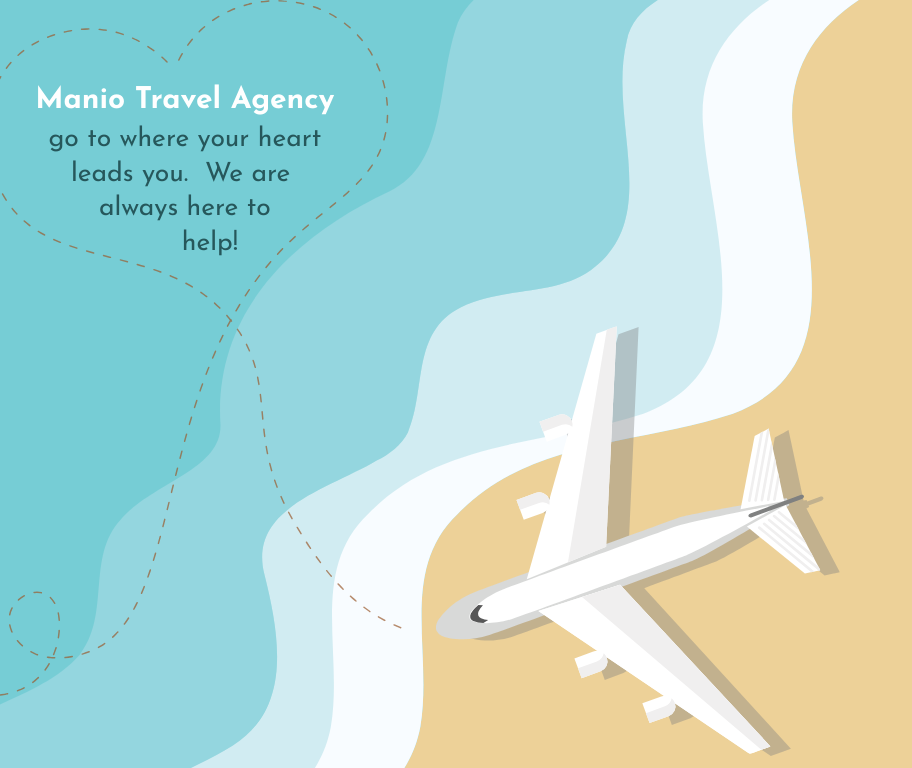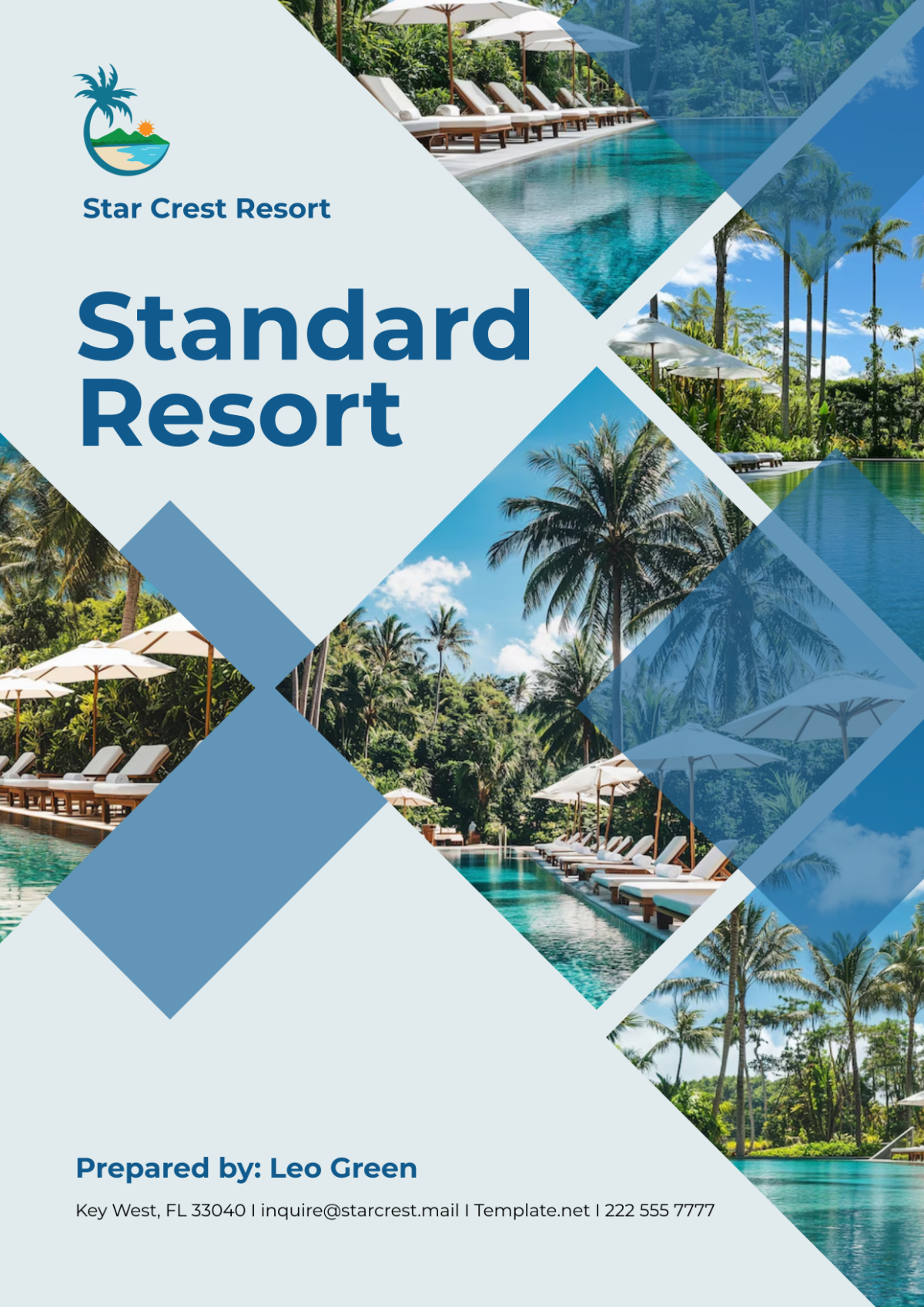Travel Agent Guide
I. Introduction
A. Overview of [Your Company Name]
[Your Company Name] has evolved into a global leader in travel and tourism services, specializing in customized travel experiences and cutting-edge travel solutions. Our commitment to innovation, excellence, and sustainability has garnered a loyal clientele that spans diverse demographics. By the year 2050, the company is renowned for its ability to adapt to changing travel landscapes, providing unparalleled services tailored to individual needs. With operations in over [100] countries, [Your Company Name] boasts an expansive range of offerings, including digital itinerary planning, virtual travel experiences, space tourism, and eco-conscious travel packages. This vast network allows us to connect travelers to unique destinations and experiences that reflect their personal values and preferences.
B. The Role of a Travel Agent in 2050
The role of a travel agent in 2050 has undergone a significant transformation, driven largely by technological advancements and shifting consumer expectations. Modern travel agents are now tech-savvy professionals capable of managing AI-driven platforms, offering augmented and virtual reality-based travel consultations, and navigating complex international regulations with ease. They serve as personal planners and consultants, providing in-depth knowledge of destinations, travel trends, and local cultures. The demands of today's travelers require agents to possess a comprehensive understanding of the travel ecosystem, allowing them to deliver seamless experiences from the moment a trip is conceived until the traveler returns home. Additionally, agents must develop strong communication skills and emotional intelligence to connect with clients on a deeper level, making their travel experiences memorable and meaningful.
C. Purpose of This Guide
This guide is designed to provide comprehensive instructions for travel agents representing [Your Company Name], equipping them with the necessary knowledge and tools to thrive in a rapidly evolving travel industry. From managing bookings and understanding cutting-edge technologies to marketing services and maintaining ethical standards, this guide serves as a one-stop resource for ensuring success in the travel profession. It aims to enhance the skills and competencies of travel agents, allowing them to meet the evolving demands of global travelers and position [Your Company Name] as a preferred choice in the competitive travel market.
II. Travel Industry Trends in 2050
A. Key Technological Advancements
The travel industry in 2050 is marked by rapid technological advancements that have revolutionized the way travel agents operate. These innovations not only streamline processes but also enhance the overall traveler experience. Some of the key technological developments include:
Artificial Intelligence (AI): AI has streamlined processes such as itinerary customization, real-time booking modifications, and customer service support. Travel agents utilize AI to provide clients with personalized recommendations based on their preferences and past behaviors, analyzing vast datasets to predict the best options for each traveler. This allows agents to act more like personalized concierges, catering to individual client needs with unparalleled efficiency.
Blockchain for Secure Payments: Blockchain technology has enabled secure, decentralized payment systems that minimize fraud and ensure transparency in financial transactions. [Your Company Name] uses blockchain to guarantee that clients have the safest and most reliable payment experiences, fostering trust and security in every transaction.
Quantum Computing: Quantum computing allows travel agents to process vast amounts of data instantly, enabling them to provide real-time updates on flight schedules, weather conditions, and international regulations. This capability not only enhances decision-making but also empowers agents to respond to client inquiries and needs in a timely manner.
B. Sustainable and Eco-Friendly Travel
Sustainability is at the core of the travel industry in 2050, as many travelers prioritize eco-friendly options from transportation to accommodations. As a travel agent at [Your Company Name], your role is to promote sustainability by offering clients green travel options. This includes:
Recommending carbon-neutral airlines and transportation modes, which have become more accessible and affordable. By providing clients with options that minimize their carbon footprint, agents can help support global efforts to combat climate change.
Partnering with eco-friendly hotels and resorts that employ renewable energy and sustainable practices, ensuring that accommodations align with clients' values and the increasing demand for responsible tourism.
Encouraging slow travel, which emphasizes longer stays at fewer destinations, reducing the overall environmental impact of frequent travel. This approach allows clients to immerse themselves in local cultures and communities while supporting local economies.
Providing virtual travel options that minimize the environmental impact of frequent flying, allowing clients to explore destinations from the comfort of their homes. This has become increasingly popular, particularly for those unable to travel due to health, financial, or time constraints.
C. Virtual and Augmented Reality (VR/AR) in Travel
Virtual and Augmented Reality (VR/AR) has opened new doors for pre-travel experiences, enabling clients to visualize their trips like never before. Through VR headsets, clients can now virtually tour destinations, view hotel rooms, and experience local attractions before even booking their trips. This allows travelers to make more informed decisions, and travel agents can offer:
360-degree VR tours of popular destinations, providing an immersive experience that engages clients and enhances their excitement about travel. This technology can also showcase lesser-known locations that might appeal to niche markets.
AR-enhanced brochures that allow clients to see travel experiences come to life. By simply pointing their devices at a brochure, clients can access videos, testimonials, and interactive elements that provide deeper insights into the offerings.
Virtual consultations, where agents and clients can discuss travel options in a simulated environment, allowing for a more interactive and engaging planning process. This method has become particularly valuable for clients who prefer visual aids and personalized experiences.
D. Space Tourism and Its Impact on the Industry
Space tourism is no longer science fiction in 2050; it has emerged as a viable segment of the travel industry. Companies like [Your Company Name] have expanded into this new frontier, offering both short trips to the Earth's lower orbit and longer journeys to lunar stations. Travel agents need to understand the complexities of space travel, including:
Partnering with spaceflight companies to provide safe, luxurious travel experiences that meet the high expectations of affluent clients seeking unique adventures. This includes understanding the intricacies of spacecraft, accommodations, and safety protocols.
Educating clients on health and safety regulations for space tourism, which differ significantly from traditional travel. Agents must ensure that clients are well-informed about the physical requirements and potential risks associated with space travel.
Handling unique travel insurance policies that cater specifically to off-world experiences, ensuring clients have comprehensive coverage for unexpected situations during their space journey. This includes providing clear explanations of coverage limits and conditions to help clients make informed decisions.
III. Services Offered by [Your Company Name]
A. Customized Travel Packages
[Your Company Name] specializes in offering personalized travel experiences tailored to individual client needs. Our agents craft bespoke itineraries, ensuring each trip reflects the client's interests and preferences. This includes:
Cultural immersion tours that allow travelers to connect with local traditions, cuisine, and art, offering authentic experiences that transcend typical tourist activities. Agents can work with local experts to design unique activities, such as cooking classes or guided cultural experiences.
Adventure travel packages encompassing a wide range of options, including space tourism, underwater explorations, and extreme sports. Clients can engage in exhilarating activities that challenge their limits while enjoying expertly curated itineraries.
Family-friendly packages with all-inclusive options and child-friendly activities, ensuring that families can travel comfortably and create lasting memories together. Agents can provide resources such as family-friendly accommodations, kid-centric activities, and safety considerations.
B. Digital Itinerary and Ticketing
Our cutting-edge digital itinerary platform simplifies the travel experience by providing clients with a comprehensive overview of their travel plans. This platform includes:
AI-curated itineraries that automatically update based on real-time data, such as weather changes, flight delays, or travel restrictions. This level of customization allows clients to enjoy peace of mind, knowing they have access to the most current information.
A fully integrated digital ticketing system, allowing clients to access transportation, accommodations, and attractions through a single app. This eliminates the need for multiple confirmations and helps travelers stay organized throughout their journey.
Interactive features that enable clients to modify their plans easily, add activities, or share their itineraries with friends and family, fostering greater engagement and flexibility in travel planning.
C. Sustainable Travel Initiatives
Sustainability is a key pillar of [Your Company Name]'s mission, and our services reflect this commitment. We offer:
Green travel options, including accommodations with sustainable certifications, ensuring that clients can make environmentally responsible choices while enjoying luxurious stays. Agents can highlight properties that utilize renewable energy sources, waste reduction practices, and local sourcing.
Carbon offset programs to minimize the environmental impact of flights, providing clients with options to contribute to reforestation and clean energy projects. This program not only appeals to eco-conscious travelers but also educates clients on the importance of reducing their carbon footprints.
Partnerships with eco-conscious vendors to ensure that every aspect of the client's journey aligns with their sustainability values. This includes working with local tour operators who emphasize responsible tourism practices and support community development.
D. VIP and Corporate Travel Management
For high-end and corporate clients, [Your Company Name] offers premium services designed to meet the needs of discerning travelers. Our exclusive offerings include:
Concierge-level planning for exclusive VIP experiences, which might involve private tours, luxury transportation, and personalized service throughout the trip. Agents can craft unforgettable experiences that cater to high-profile clients' unique interests.
Corporate travel solutions, including meeting arrangements, event management, and multi-destination trips. We help companies maximize efficiency and minimize costs while ensuring a seamless travel experience for their employees and clients.
Private jet and yacht charters for clients seeking the ultimate in luxury and privacy. This service provides clients with exclusive access to high-end transportation options, enhancing their overall travel experience and catering to their specific needs.
IV. Essential Skills and Competencies for Travel Agents
A. Customer Relationship Management (CRM) Skills
In the competitive landscape of travel services, strong customer relationship management (CRM) skills are essential for travel agents. Agents must:
Cultivate lasting relationships with clients, leveraging data to personalize interactions and ensure every communication is relevant and timely. Understanding client preferences allows agents to anticipate needs and provide exceptional service.
Utilize advanced CRM systems to track interactions, manage inquiries, and follow up on past trips, ensuring that no detail is overlooked. These systems enable agents to maintain a high level of organization and efficiency in their work.
Engage in active listening, demonstrating empathy and understanding during conversations with clients. This approach fosters trust and builds rapport, which is crucial in maintaining a loyal customer base.
B. Proficiency in Travel Management Software
In 2050, travel agents are required to be proficient in a variety of travel management software platforms that facilitate smooth operations. Agents should:
Master tools for booking flights, hotels, and activities, ensuring they can quickly navigate through various options and secure the best deals for clients. Familiarity with these platforms enhances productivity and improves customer service.
Stay updated on emerging technologies and software updates to maintain a competitive edge and provide clients with the latest solutions. Continuous learning ensures that agents are equipped to handle new features and functionalities as they arise.
Understand data analytics to assess travel trends, client preferences, and market changes. This knowledge enables agents to make informed decisions that enhance their offerings and improve customer satisfaction.
C. Knowledge of Sustainability Practices
As sustainability becomes increasingly important in travel, agents must possess comprehensive knowledge of eco-friendly practices. This includes:
Understanding sustainable tourism principles and how to incorporate them into travel itineraries, promoting environmentally responsible choices to clients. Agents should be able to articulate the benefits of sustainable practices and their impact on local communities.
Keeping abreast of certifications and standards for sustainable accommodations and services, allowing agents to recommend options that align with clients' values. Knowledge of these certifications empowers agents to make informed recommendations.
Advocating for responsible tourism practices, educating clients on how their travel choices affect the environment and local cultures. This educational approach fosters a sense of responsibility and encourages clients to make conscious decisions.
D. Expertise in Global Regulations and Safety Standards
In a rapidly changing global landscape, travel agents must be well-versed in international regulations and safety protocols. This expertise includes:
Staying informed about travel restrictions, visa requirements, and health regulations for various destinations. This knowledge is essential for helping clients navigate the complexities of international travel and avoid potential complications.
Understanding safety standards for different modes of transportation and accommodations, ensuring that clients are informed about potential risks and how to mitigate them. Agents must prioritize the safety and well-being of their clients throughout their journeys.
Being prepared to adapt to changing circumstances, such as health emergencies or political unrest, and having contingency plans in place to ensure the safety of travelers. This proactive approach demonstrates a commitment to client welfare and builds trust.
V. Travel Booking and Reservation Systems
A. Overview of Automated Booking Systems
Automated booking systems have become essential tools for travel agents, streamlining the booking process and improving efficiency. Key features of these systems include:
Real-time availability of flights, hotels, and activities, allowing agents to quickly secure reservations for clients and minimize delays. This ensures that clients receive prompt service, enhancing their overall experience.
Automated notifications that alert agents to changes in bookings, such as cancellations or delays, enabling them to proactively communicate with clients and manage expectations. This feature is crucial for maintaining high levels of customer satisfaction.
Integration with payment systems that facilitate secure transactions and simplify the financial aspects of travel planning. This integration reduces the risk of errors and enhances the overall efficiency of the booking process.
B. Integration of AI-Powered Platforms
Artificial Intelligence is transforming the way travel agents manage bookings and client interactions. Agents must be proficient in:
Utilizing AI-driven platforms to analyze customer data, allowing for personalized recommendations based on previous travel patterns and preferences. This capability enhances the agent's ability to cater to individual client needs and desires.
Managing automated chatbots that handle common inquiries and provide immediate assistance to clients, freeing agents to focus on more complex tasks. These chatbots can efficiently address routine questions and enhance the customer experience.
Implementing predictive analytics to forecast travel trends, enabling agents to tailor their offerings to match emerging demands. Understanding these trends helps agents stay ahead of the competition and anticipate client needs.
C. Managing Real-Time Bookings and Cancellations
In 2050, travel plans can change rapidly due to various factors. Travel agents must be equipped to handle these dynamics by:
Utilizing real-time update systems to manage client bookings, cancellations, and delays, ensuring that clients receive timely information regarding their travel plans. This responsiveness is critical in maintaining client trust and satisfaction.
Implementing automated rebooking processes that allow clients to adjust their itineraries without agent intervention. This capability empowers clients to make changes swiftly, enhancing their overall experience and satisfaction.
Establishing contingency plans for unexpected disruptions, such as natural disasters or health crises, to ensure client safety and minimize inconvenience. Proactive measures help agents manage crises effectively and maintain strong client relationships.
D. Understanding International Travel Restrictions
Navigating the complexities of international travel restrictions is vital for agents in 2050. Agents must:
Stay informed about travel bans, health regulations, and quarantine requirements for each destination, ensuring that clients have accurate and up-to-date information. This knowledge helps agents advise clients effectively and prevent potential issues during travel.
Provide clients with clear, concise up-to-date information about travel advisories, health screening procedures, and vaccination mandates. This proactive approach empowers clients to make informed decisions about their travel plans.
Develop relationships with local authorities and partners in various destinations to gain insights into emerging regulations and restrictions, enhancing their ability to guide clients through the travel process smoothly.
VI. Marketing Strategies for Travel Agents
A. Digital Marketing Tools
To succeed in 2050, travel agents must leverage the latest digital marketing tools, including:
Social media advertising on platforms like Hyper-Instagram and GlobalSnap, which are popular with travelers. Engaging content on these platforms can attract potential clients and showcase unique travel offerings.
Search engine optimization (SEO) to improve visibility on travel-related search engines, ensuring that [Your Company Name] appears prominently in search results. Effective SEO strategies increase the likelihood of attracting organic traffic to the company’s website.
Targeted email campaigns that use AI to send personalized offers based on customer data. These campaigns foster engagement and encourage repeat bookings by delivering relevant content directly to clients’ inboxes.
B. Social Media Campaigns
Social media platforms remain critical for travel marketing. Agents should focus on:
Influencer partnerships to showcase travel experiences, leveraging the reach of popular influencers to tap into their audiences. Collaborations can increase brand visibility and credibility, making travel offerings more appealing to potential clients.
Creating immersive content, such as 3D virtual tours and live-streaming from travel destinations, to engage potential clients in unique and interactive ways. This content helps showcase the essence of travel experiences and captures the attention of diverse audiences.
Utilizing user-generated content, encouraging clients to share their travel experiences online. This strategy builds community and authenticity, allowing potential clients to see real-life experiences and recommendations.
C. Referral Programs and Loyalty Rewards
Loyalty rewards and referral programs incentivize repeat business. Travel agents can:
Offer discounts or free upgrades to clients who refer others, creating a win-win situation that rewards both the referring client and the new customer. This strategy enhances customer loyalty and drives new business.
Implement tiered loyalty programs, where clients accumulate points for bookings and receive exclusive perks, such as complimentary services or special access to events. These programs encourage repeat bookings and foster long-term relationships with clients.
Host exclusive events or webinars for loyal clients to showcase new offerings, provide travel tips, and build a sense of community among repeat customers. This personal touch enhances client engagement and reinforces brand loyalty.
D. Content Creation for Travel Blogs and Vlogs
Content creation is a powerful way to attract clients. As a travel agent, you can:
Write informative travel blogs about trending destinations, cultural insights, or sustainable travel. This content positions agents as experts in their field and provides valuable information that can influence clients’ travel decisions.
Produce engaging vlogs showcasing unique travel experiences, capturing the essence of destinations through visual storytelling. Vlogs can reach broader audiences and serve as a dynamic marketing tool that resonates with potential clients.
Share client testimonials and stories on blogs and social media, highlighting the experiences of satisfied travelers. This builds credibility and fosters trust among prospective clients, encouraging them to choose [Your Company Name].
VII. Legal and Ethical Responsibilities
A. Data Privacy and Cybersecurity Laws
In the digital era, protecting customer information is paramount. Agents must:
Adhere to global data privacy laws, such as the Global Data Protection Act of [2050], which govern the handling of personal information. Compliance with these regulations not only protects clients but also enhances the reputation of [Your Company Name].
Use encrypted platforms for processing bookings and payments, ensuring that sensitive information is safeguarded against cyber threats. This commitment to security builds client trust and fosters a safe environment for transactions.
Regularly update security protocols and train staff on best practices to mitigate risks associated with data breaches. A proactive approach to cybersecurity is essential in maintaining the integrity of client information.
B. Consumer Rights and Refund Policies
Understanding consumer rights is essential for travel agents. Agents should:
Familiarize themselves with international consumer protection laws and ensure that all policies related to refunds and cancellations are transparent and fair. This knowledge helps agents navigate client inquiries effectively and maintain compliance with regulations.
Clearly communicate refund policies to clients at the time of booking, ensuring they understand their rights and options. This transparency fosters trust and reduces misunderstandings regarding financial transactions.
Be prepared to advocate for clients in cases of disputes with suppliers, leveraging knowledge of regulations to resolve issues fairly and efficiently. Strong advocacy demonstrates the commitment of [Your Company Name] to client satisfaction.
C. Environmental and Cultural Sensitivity
As global citizens, travel agents must promote respectful and responsible travel practices. This includes:
Educating clients on the importance of respecting local cultures, customs, and traditions. Agents should provide resources and tips to ensure clients are aware of cultural norms when traveling to new destinations.
Promoting cultural sensitivity through engagement with local communities, highlighting the significance of sustainable tourism practices that benefit both travelers and hosts. Agents can encourage clients to participate in community-based tourism experiences.
Ensuring that itineraries prioritize environmental conservation and cultural preservation, aligning travel experiences with responsible tourism principles. By emphasizing these values, agents can inspire clients to travel in a way that positively impacts the places they visit.
D. Professional Conduct and Certifications
Professionalism is crucial in the travel industry. Agents must:
Maintain a high standard of ethical conduct, ensuring that client interests are always prioritized. This commitment to integrity fosters trust and loyalty among clients.
Pursue relevant certifications that enhance their expertise and credibility, such as the Global Travel Certification Program. These credentials demonstrate a commitment to professional development and industry standards.
Participate in ongoing training and workshops to stay informed about industry trends, regulations, and best practices. Continuous education ensures that agents can provide the best possible service to their clients.
VIII. Client Communication and Engagement
A. Building Trust with Clients
Establishing trust is vital for successful client relationships. Agents should:
Be transparent and honest in all communications, providing accurate information about travel options, pricing, and potential risks. This openness fosters confidence in the agent-client relationship.
Maintain regular contact with clients before, during, and after their trips, demonstrating genuine interest in their experiences. This proactive approach enhances client satisfaction and loyalty.
Personalize interactions by remembering details about clients' preferences, past trips, and special occasions. This attention to detail reinforces the idea that clients are valued and appreciated.
B. Managing Difficult Situations
In the travel industry, challenges may arise. Agents must be prepared to:
Approach difficult situations with empathy and professionalism, listening to client concerns and providing solutions that address their needs. Active listening helps agents understand the root of the issue and craft effective resolutions.
Maintain a calm demeanor, especially in high-pressure situations, to instill confidence in clients. Clients appreciate agents who can navigate challenges gracefully, providing reassurance and support.
Develop contingency plans for common travel disruptions, such as flight cancellations or lost luggage, and communicate these plans clearly to clients. Clients will feel more secure knowing that agents have strategies in place to address potential issues.
C. Post-Trip Follow-up and Reviews
Following up with clients after their trips is essential for building lasting relationships. Agents should:
Send personalized thank-you messages to clients, expressing appreciation for their business and interest in their travel experiences. This gesture enhances the client-agent relationship and encourages repeat business.
Request feedback through surveys or reviews, allowing clients to share their experiences and suggestions for improvement. This valuable information can help agents refine their services and offerings.
Encourage clients to share their travel stories and photos on social media, tagging [Your Company Name] to foster community and engagement. Sharing client experiences publicly enhances the brand's reputation and attracts potential clients.
IX. The Future of Travel and [Your Company Name]
A. Adapting to Industry Changes
As the travel industry continues to evolve, [Your Company Name] remains committed to adapting to changes. This includes:
Staying informed about emerging trends, such as new travel technologies and consumer preferences, allowing agents to anticipate shifts in the market and adjust offerings accordingly.
Embracing innovation, whether through adopting new software, collaborating with tech startups, or integrating AI into everyday operations. This forward-thinking approach positions [Your Company Name] as a leader in the industry.
Fostering a culture of adaptability among staff, encouraging continuous learning and exploration of new ideas to enhance the company's offerings. A flexible mindset ensures that [Your Company Name] can thrive in a dynamic environment.
B. Expanding to New Travel Markets
To sustain growth, [Your Company Name] will explore opportunities in new markets. This involves:
Identifying emerging travel destinations and trends, allowing agents to develop offerings that cater to untapped markets and diverse traveler interests. Research and data analysis will be crucial in this process.
Collaborating with local partners in new markets to establish a network of trusted suppliers, ensuring that clients receive authentic experiences and reliable services. These partnerships will enhance the quality of offerings.
Developing targeted marketing strategies to reach new demographics, ensuring that the company's message resonates with diverse audiences and encourages exploration of new travel experiences.
C. Continuous Learning and Development
The journey of a travel agent is one of lifelong learning. [Your Company Name] emphasizes:
Ongoing training programs and workshops to keep agents updated on industry best practices, regulations, and technological advancements. Continuous education empowers agents to deliver exceptional service and stay competitive.
Encouraging agents to pursue certifications and attend industry conferences to broaden their knowledge and network with peers. This investment in professional development contributes to individual and organizational success.
Fostering a culture of curiosity and exploration, encouraging agents to travel and experience new destinations firsthand. Personal travel experiences enrich agents’ knowledge and enable them to provide authentic recommendations to clients.
